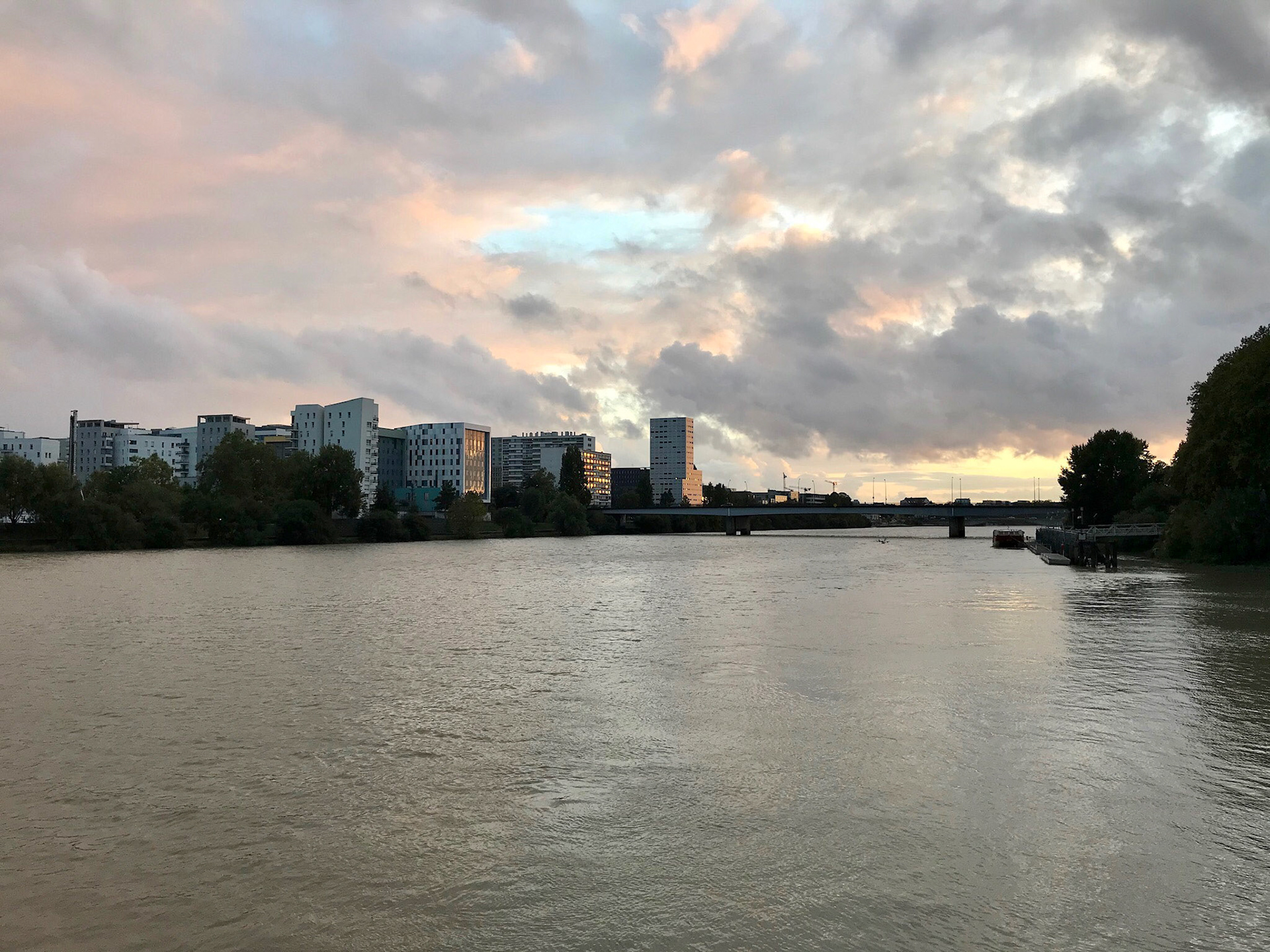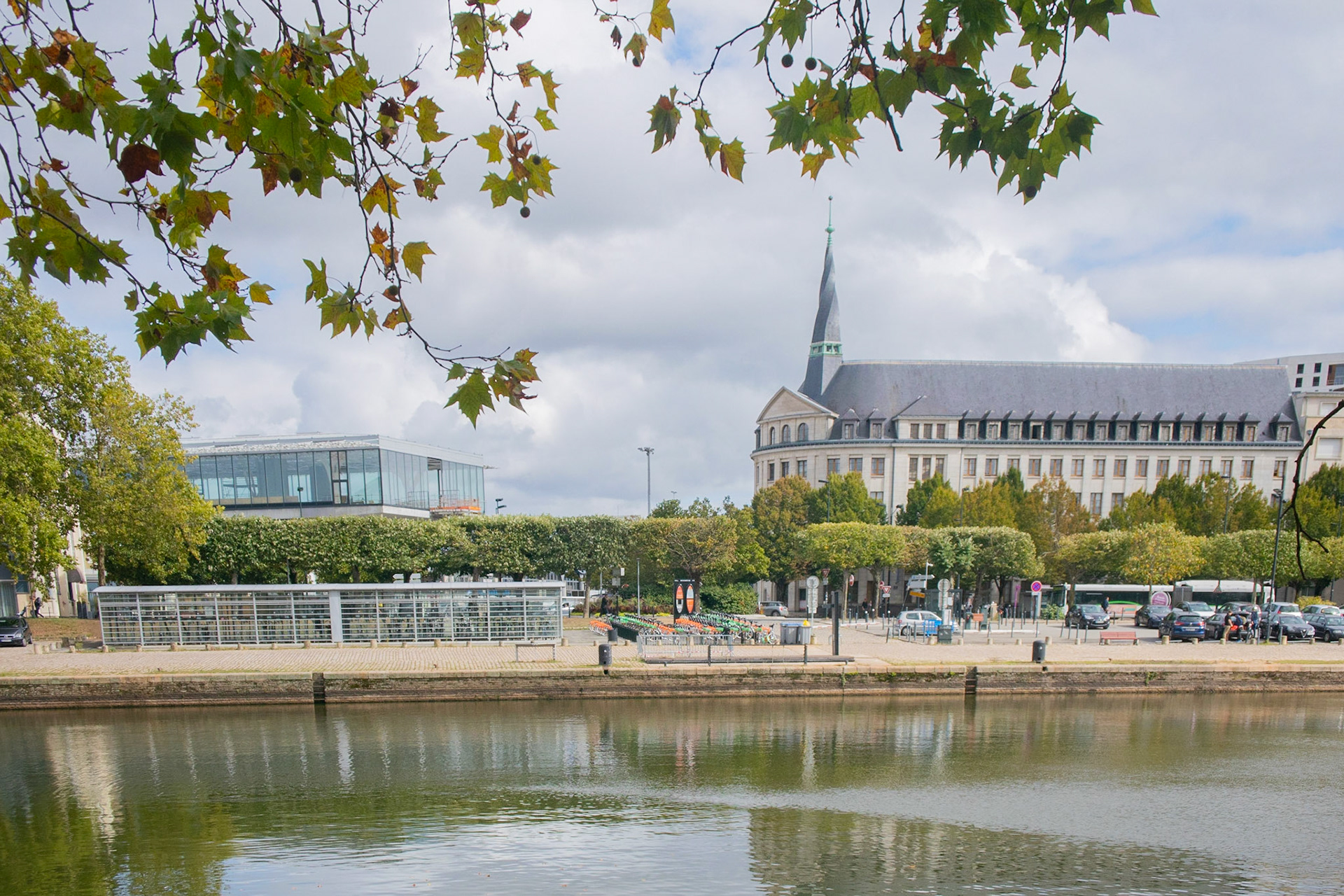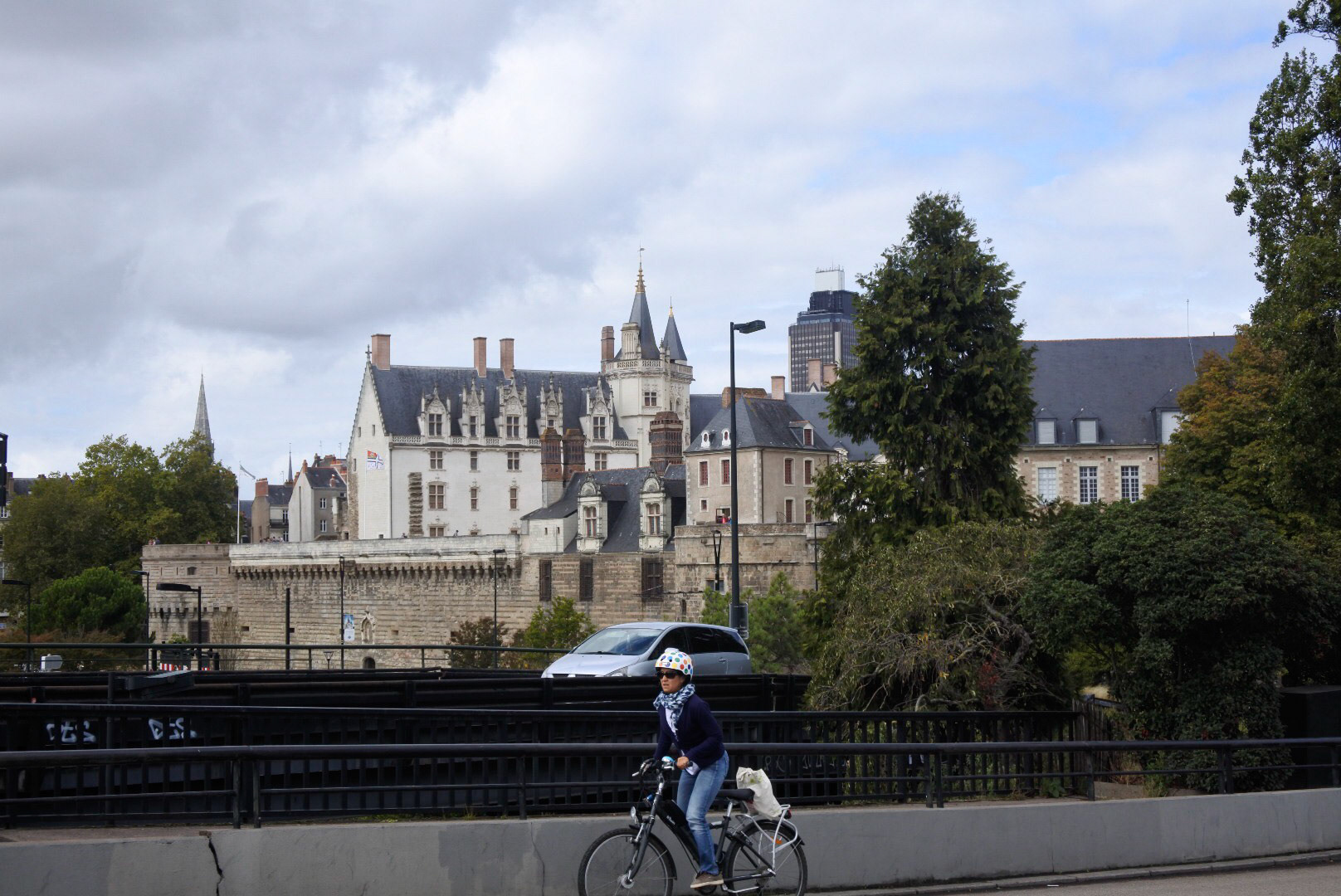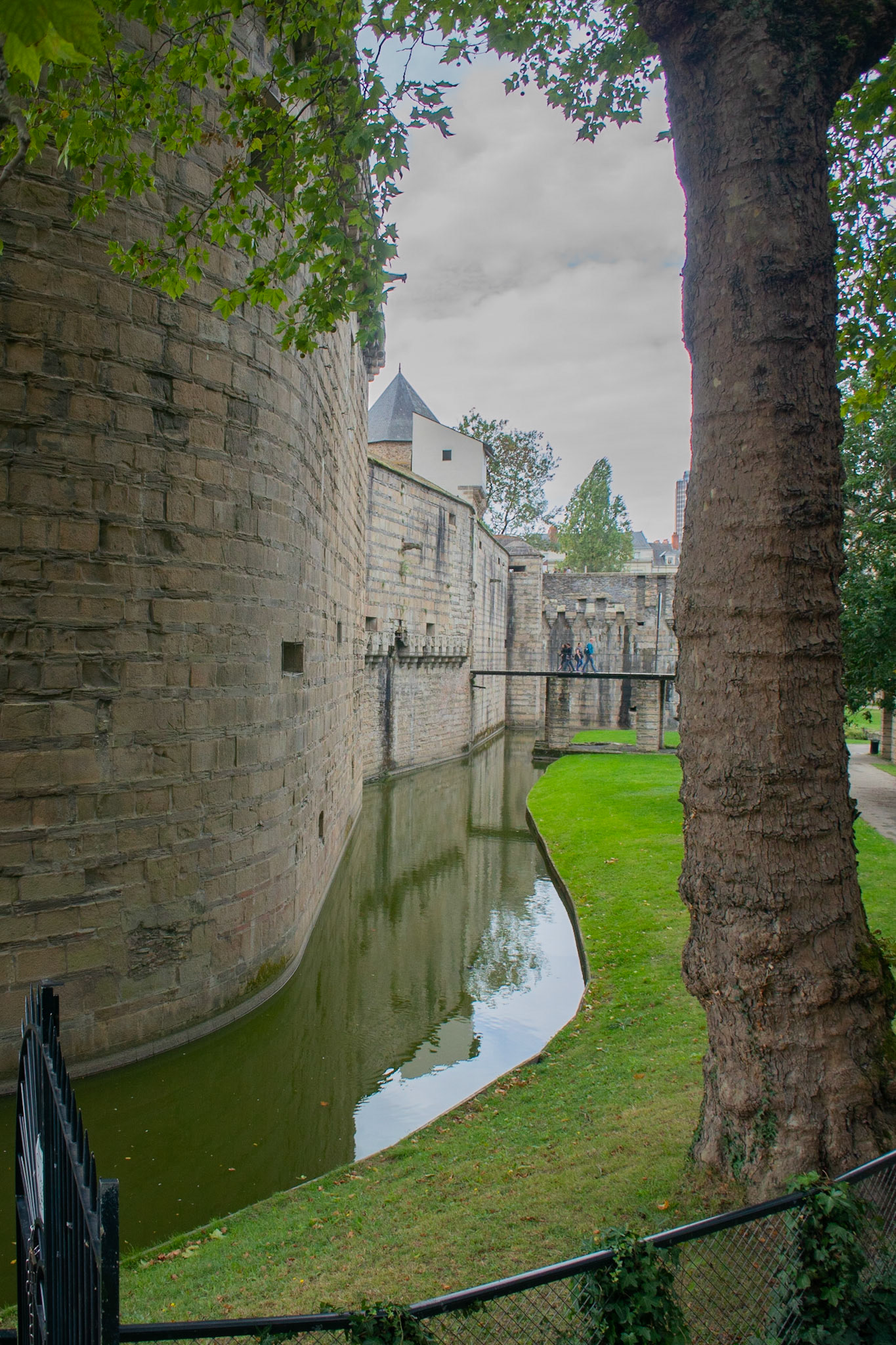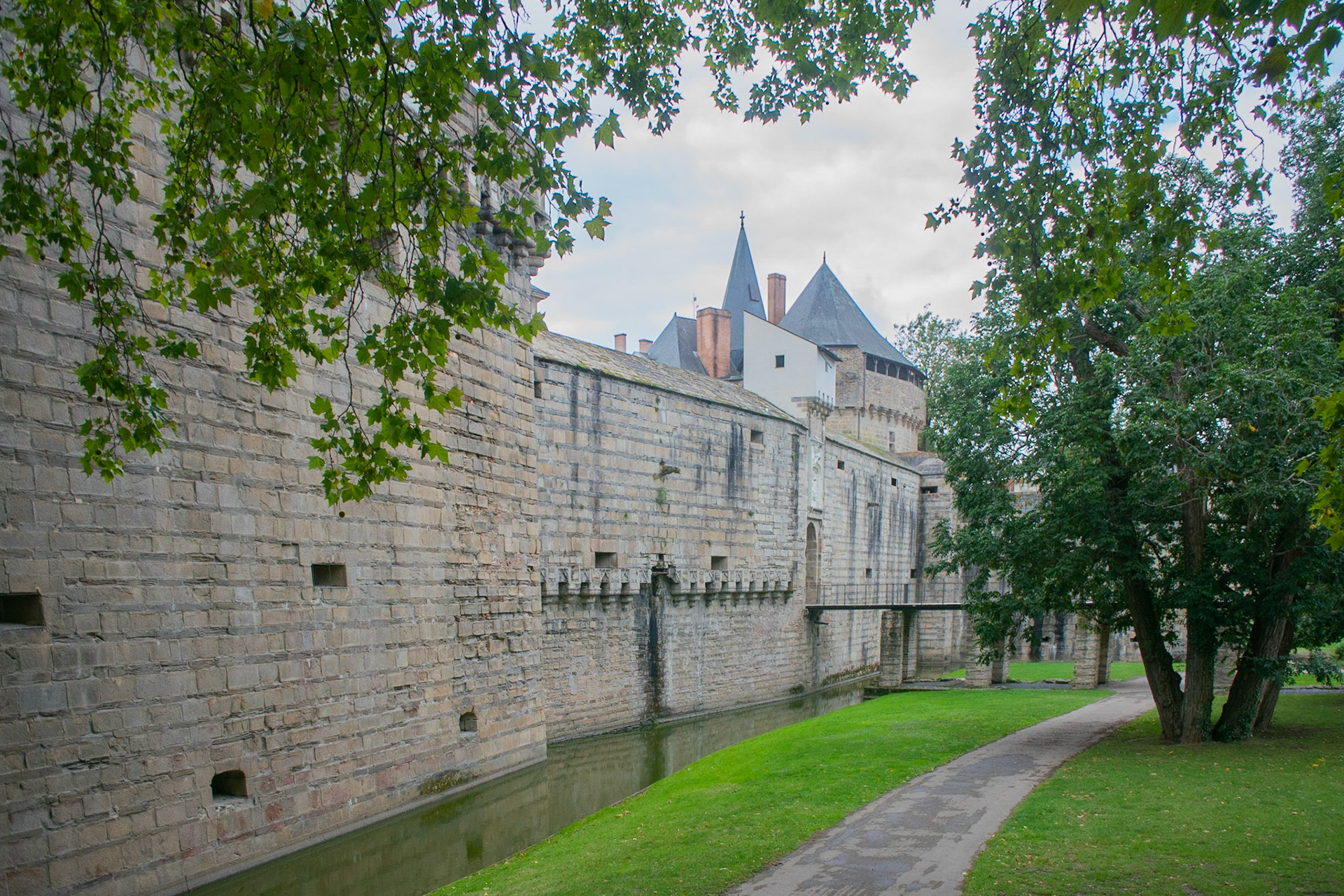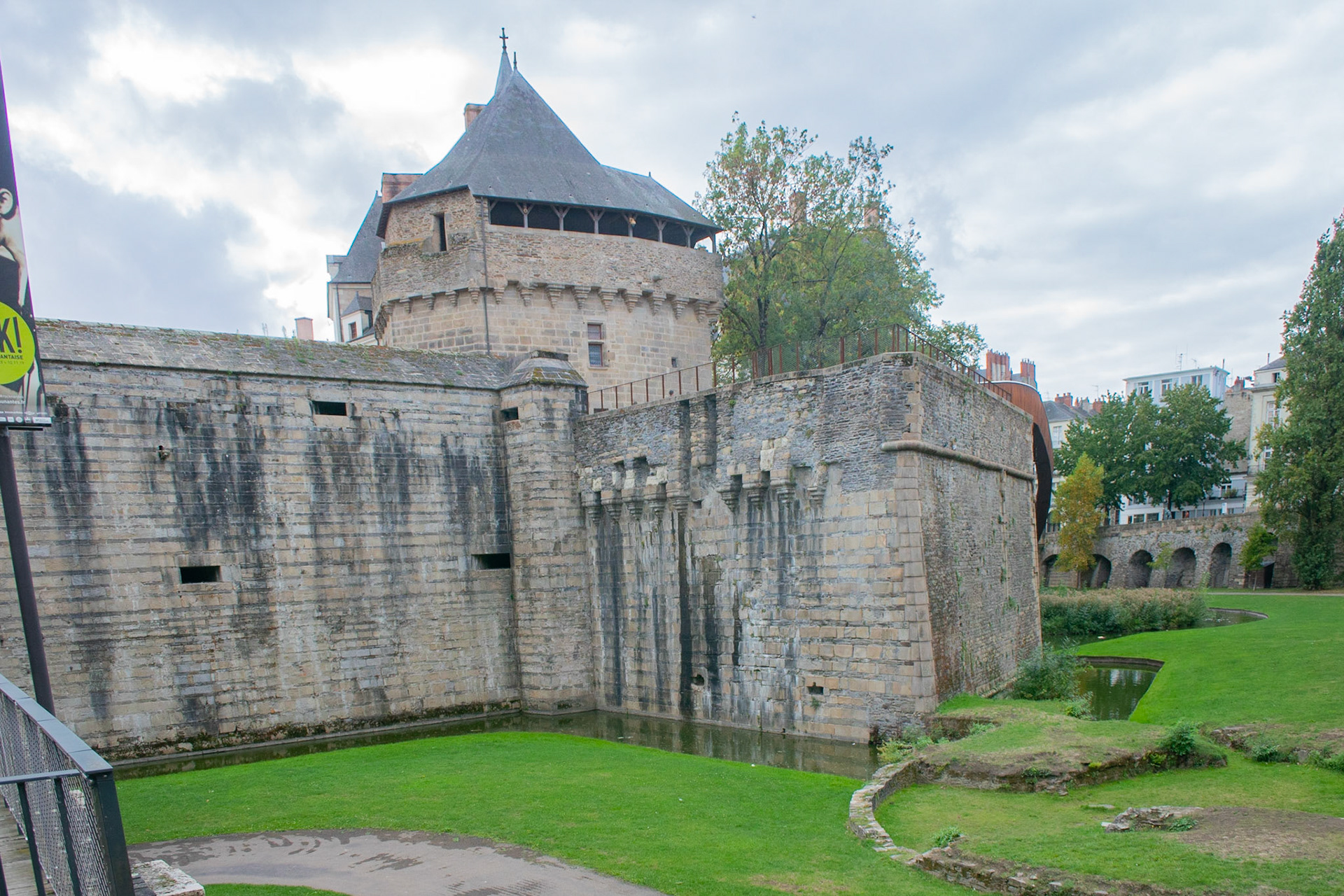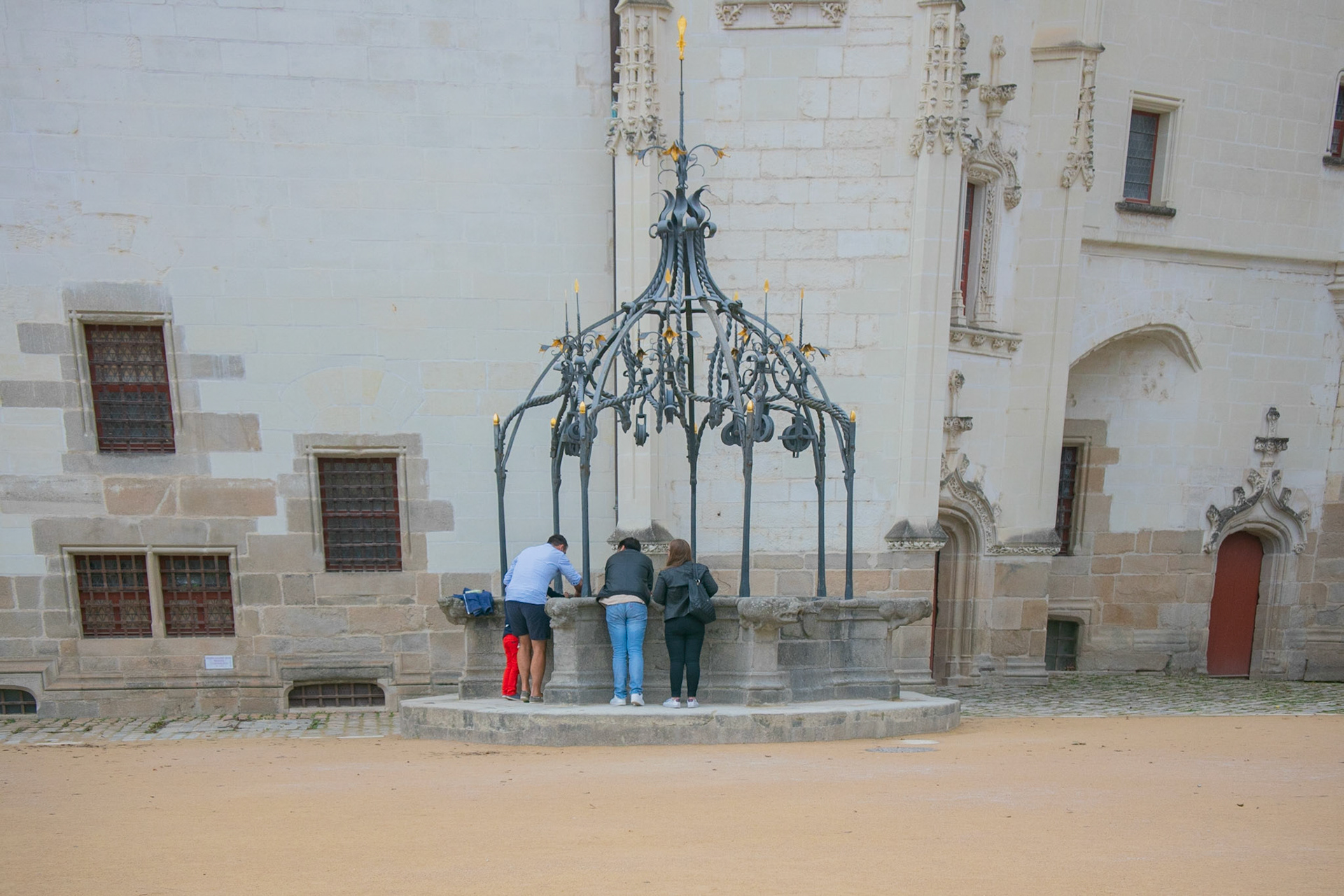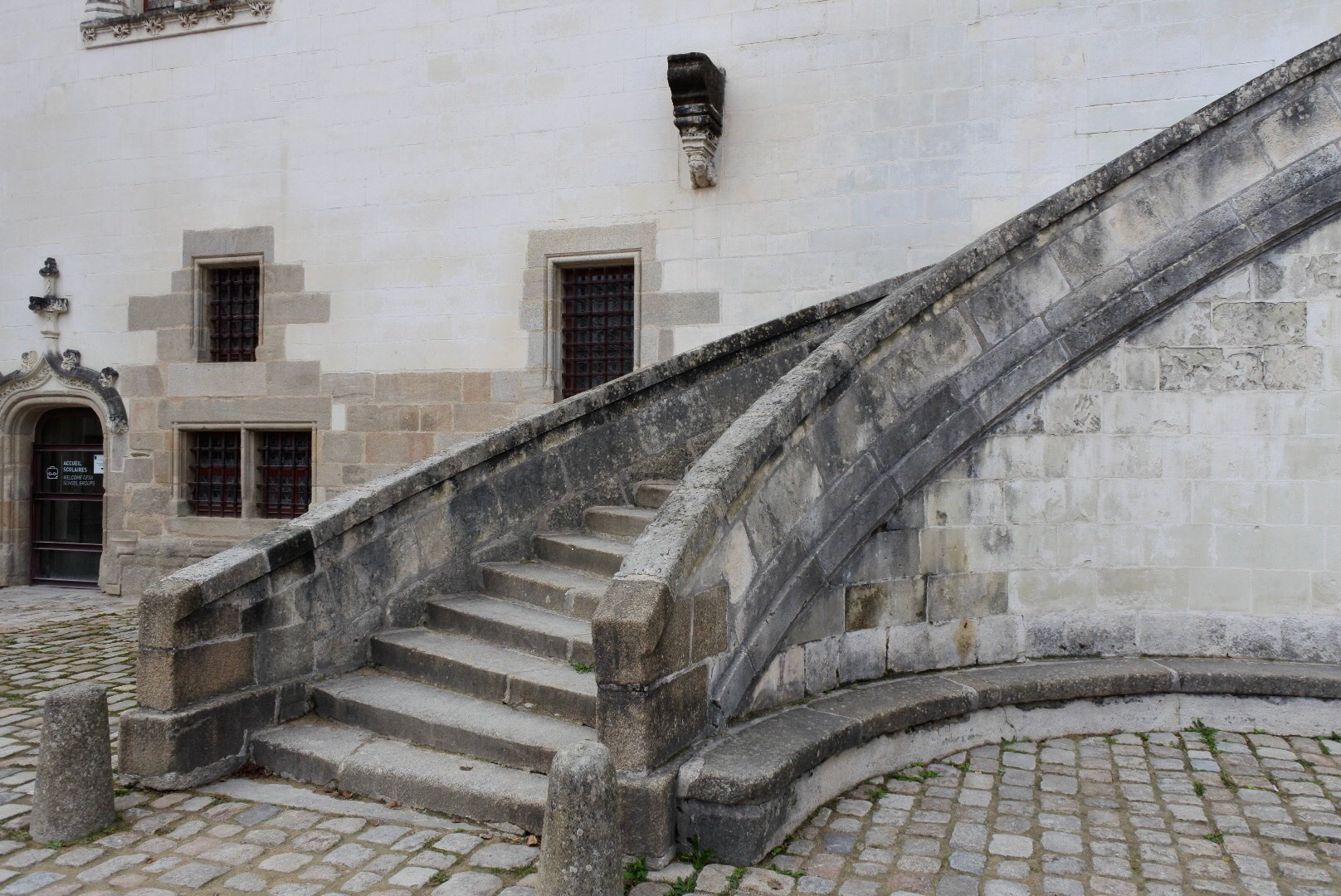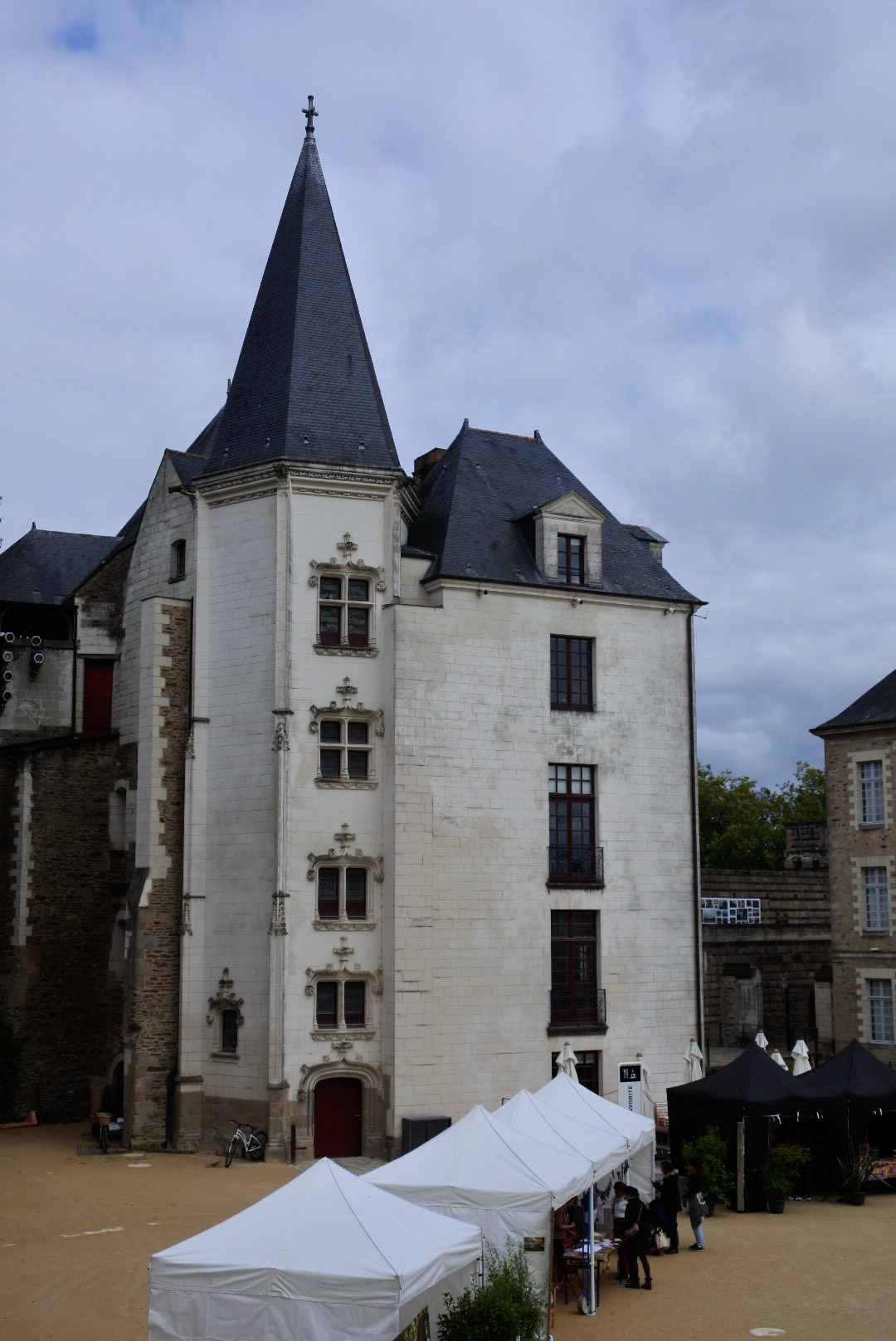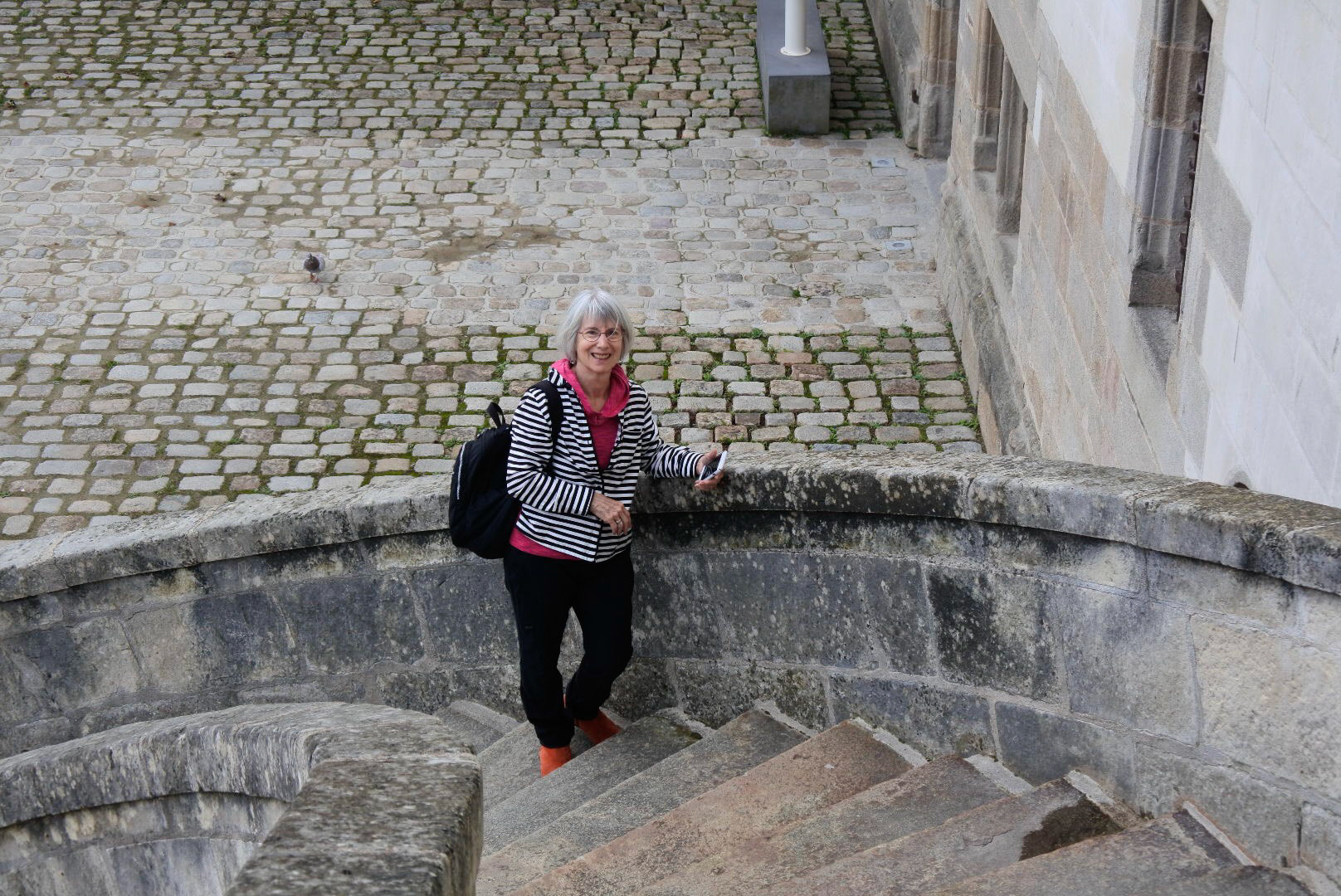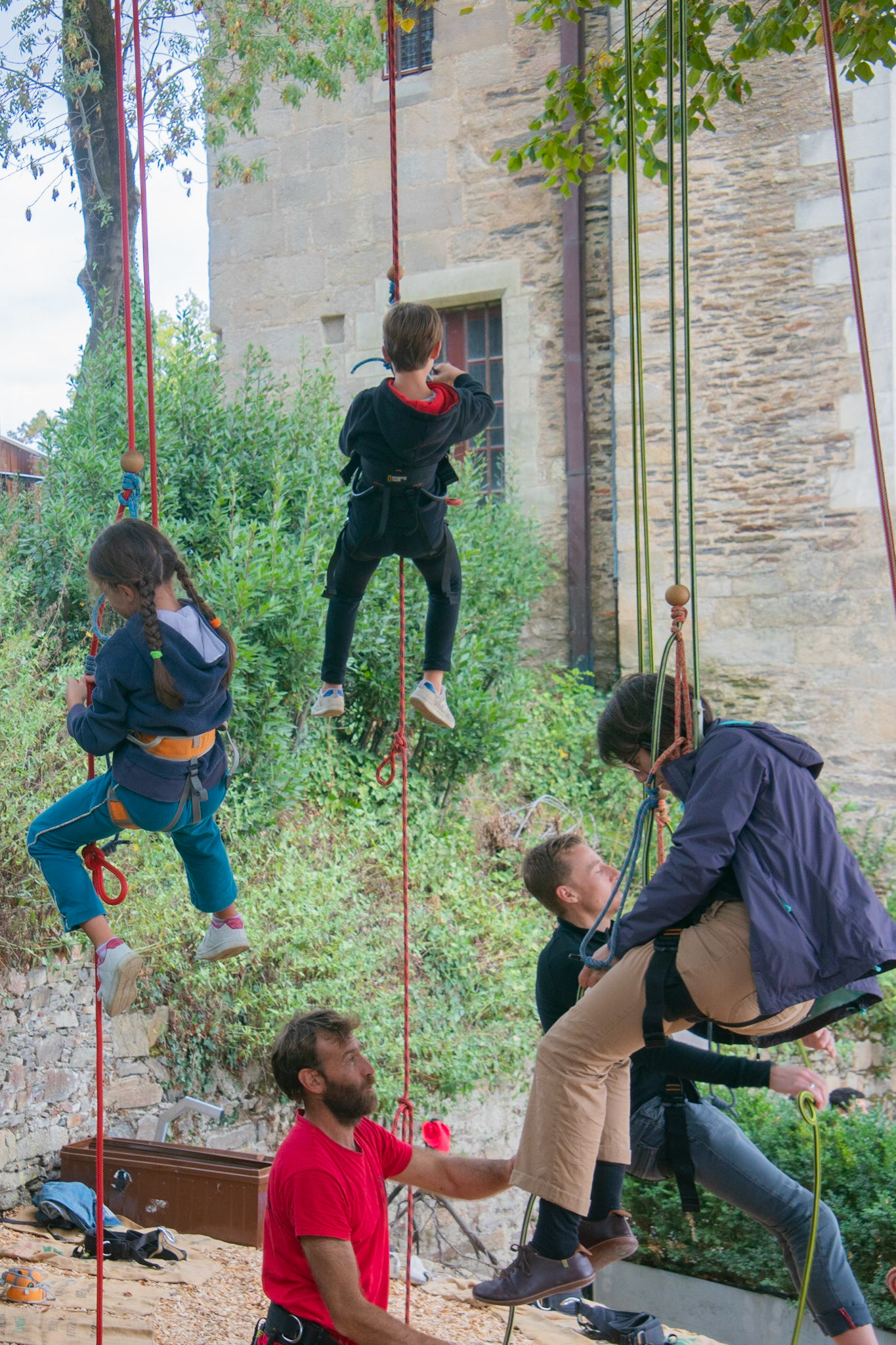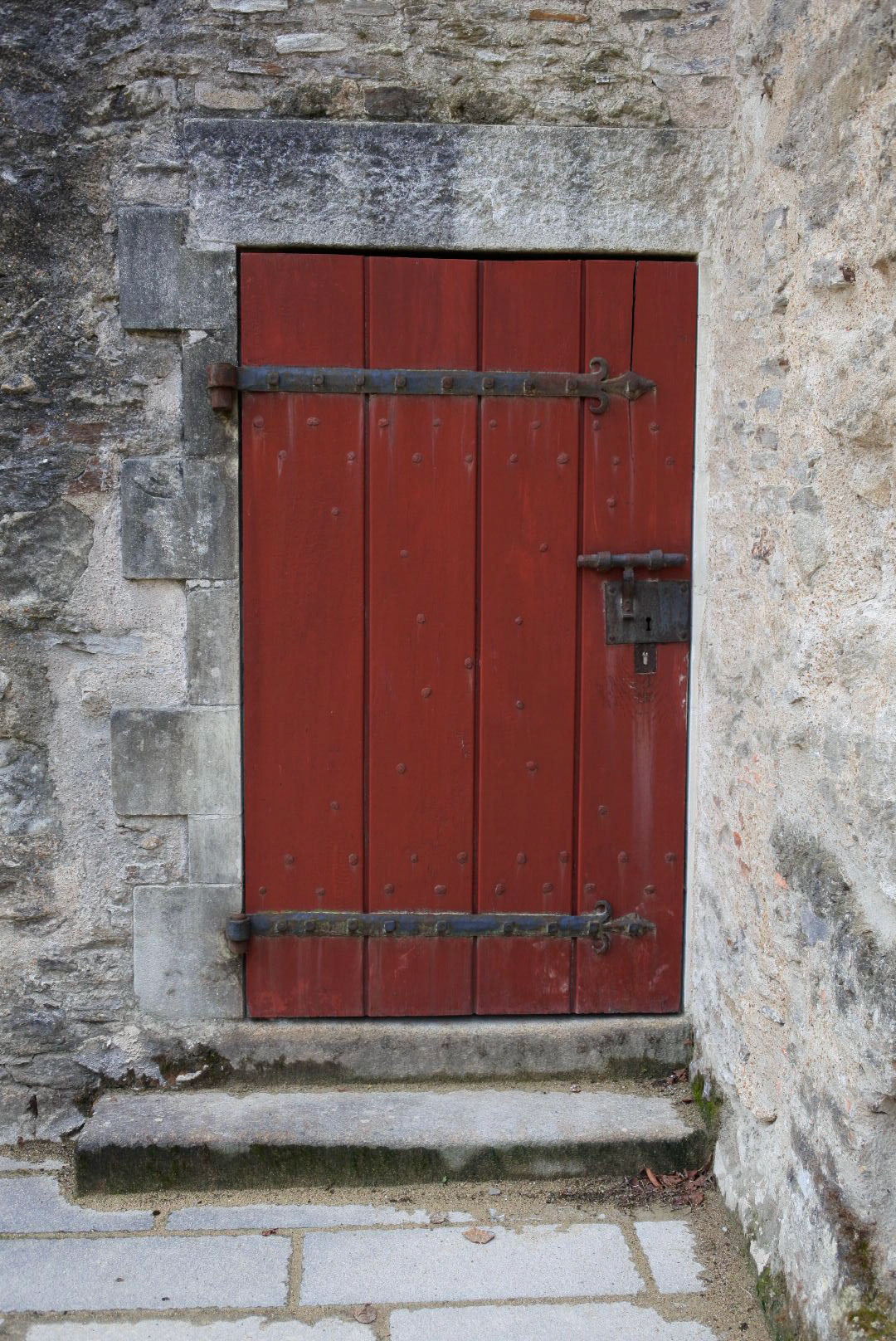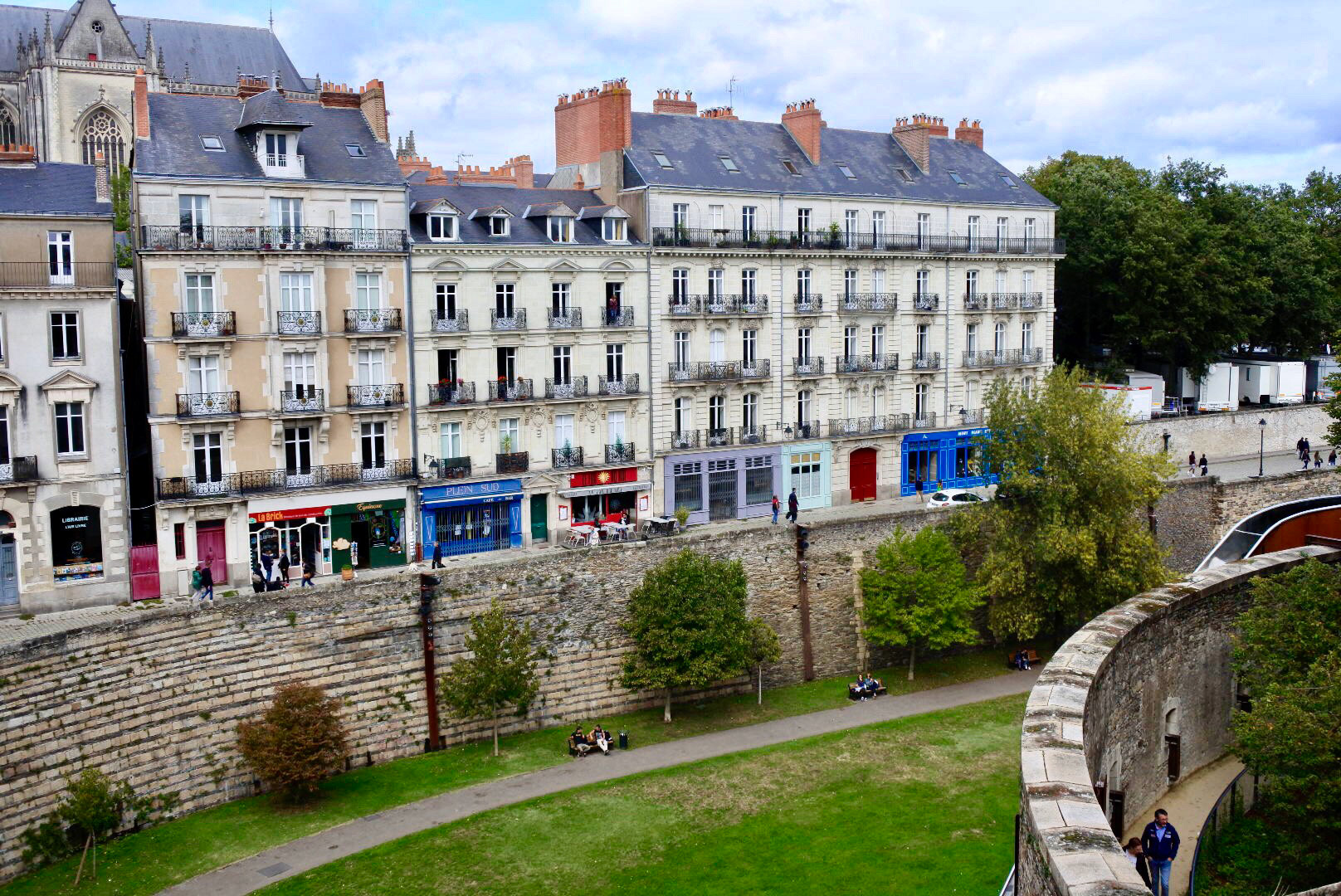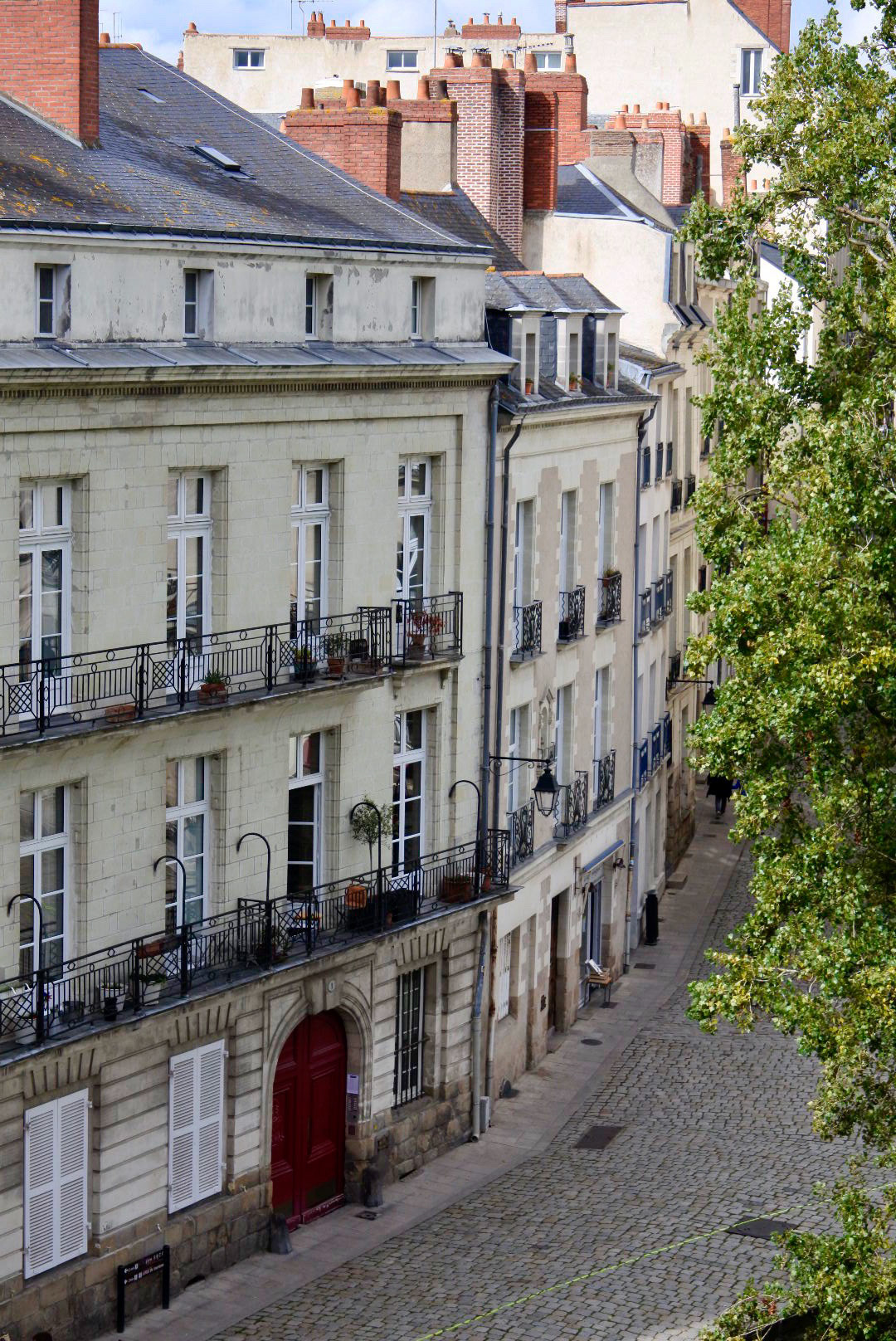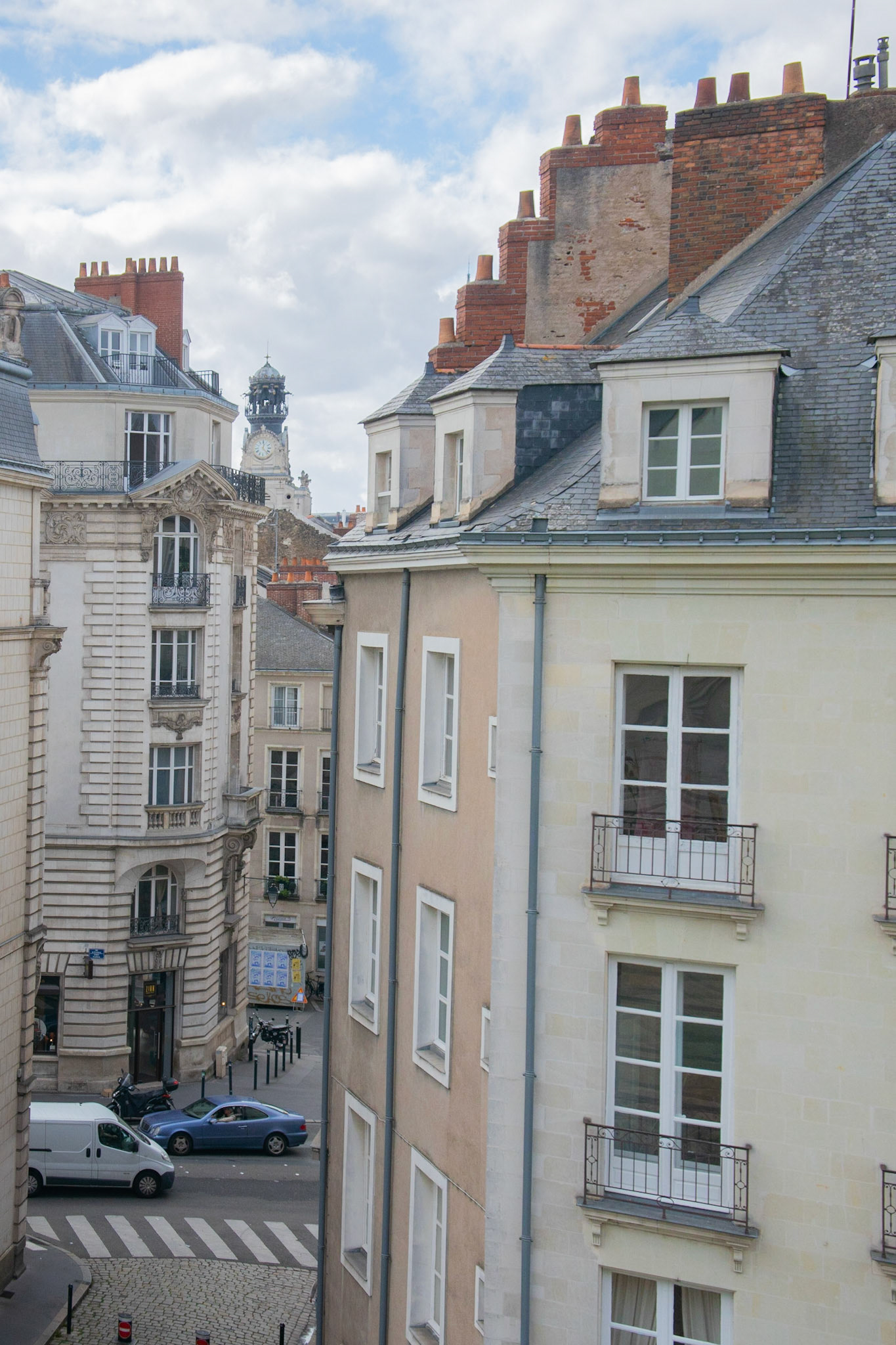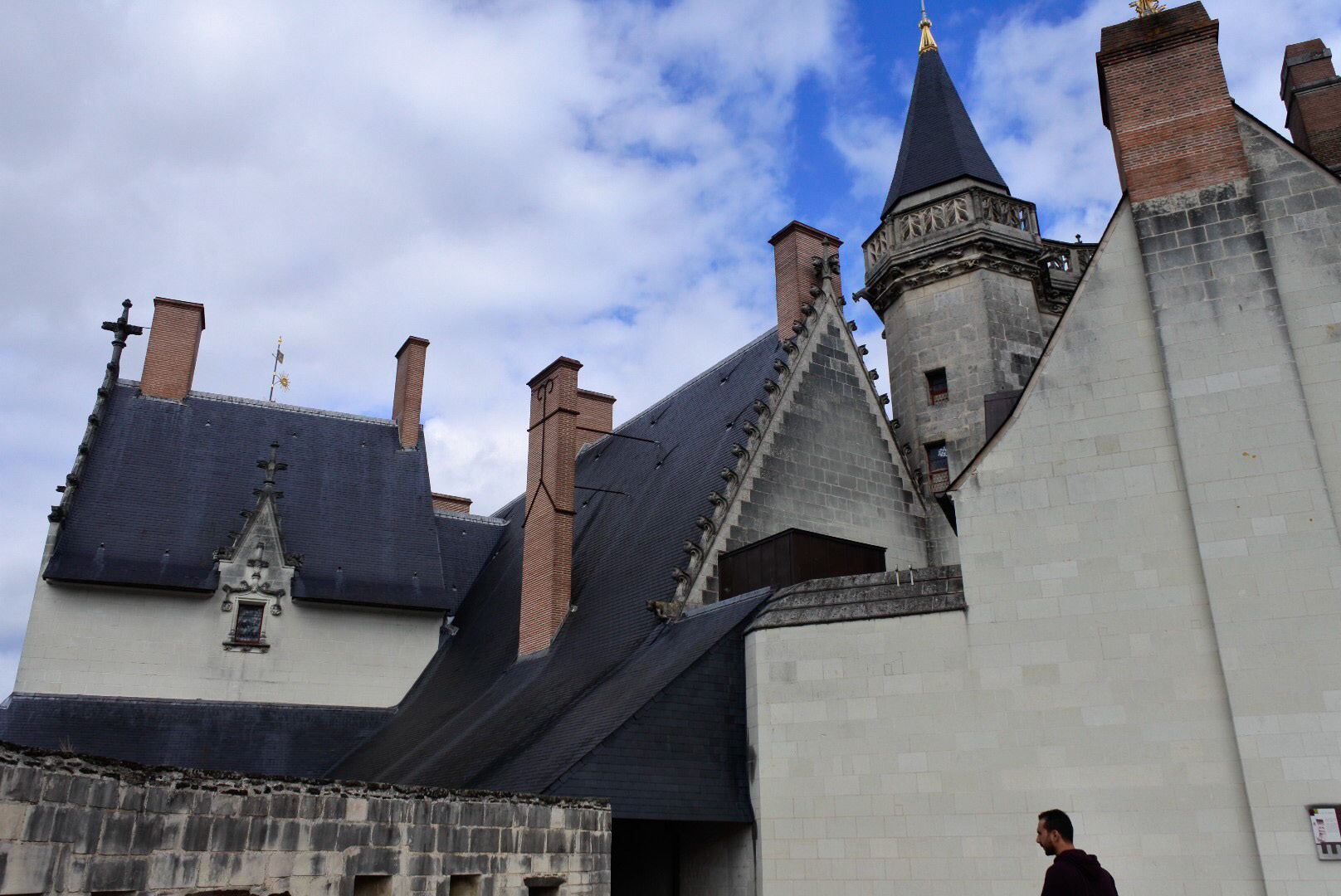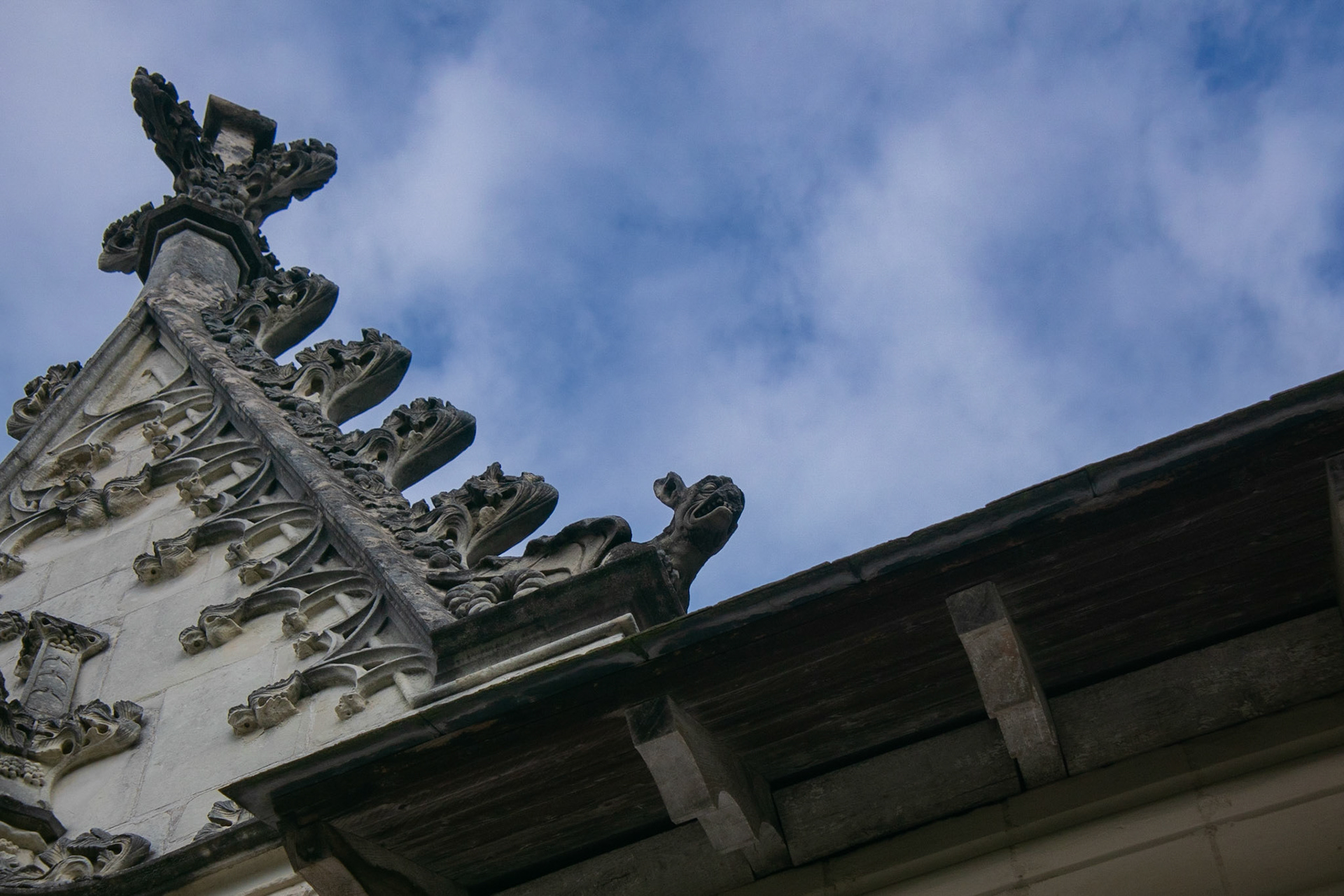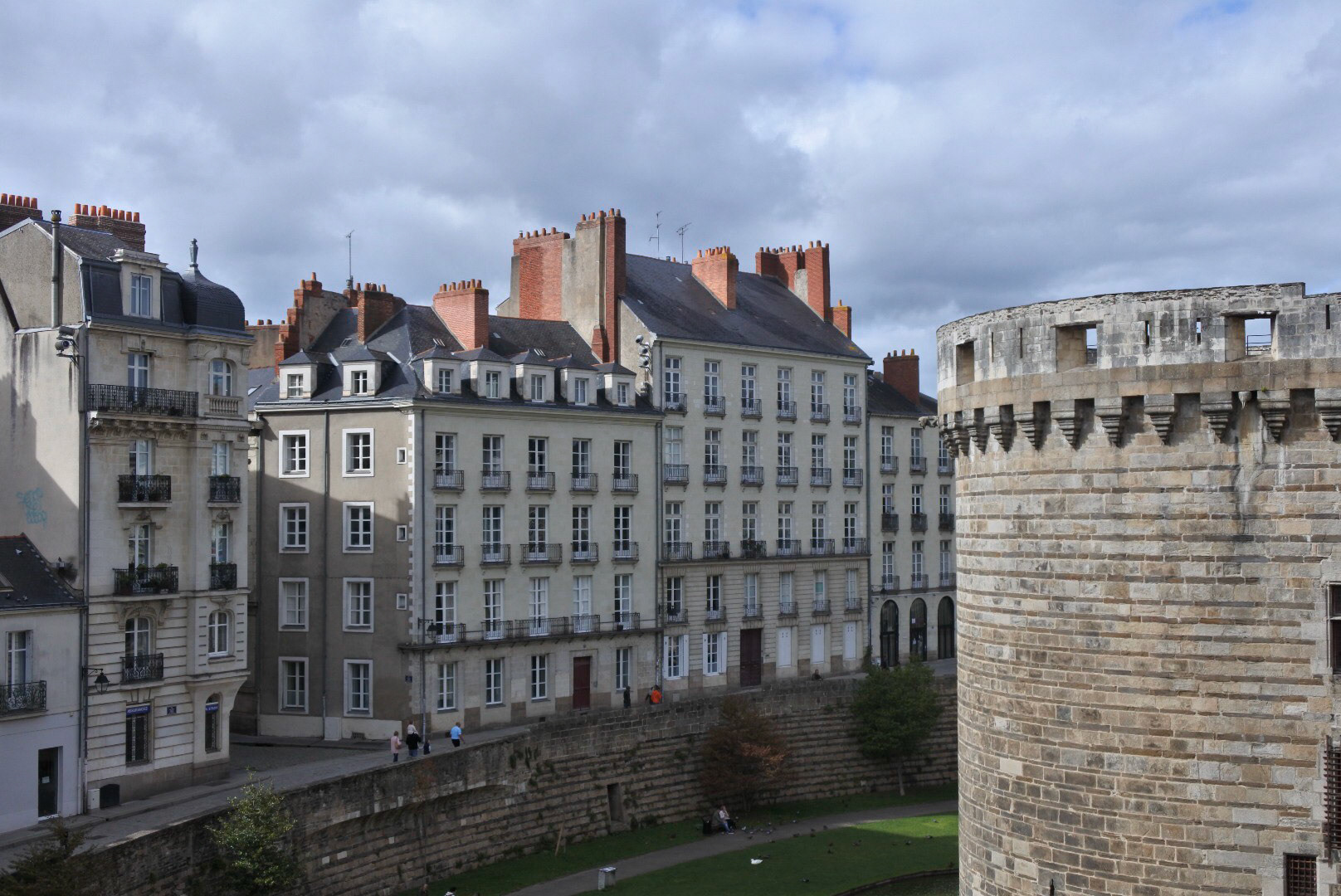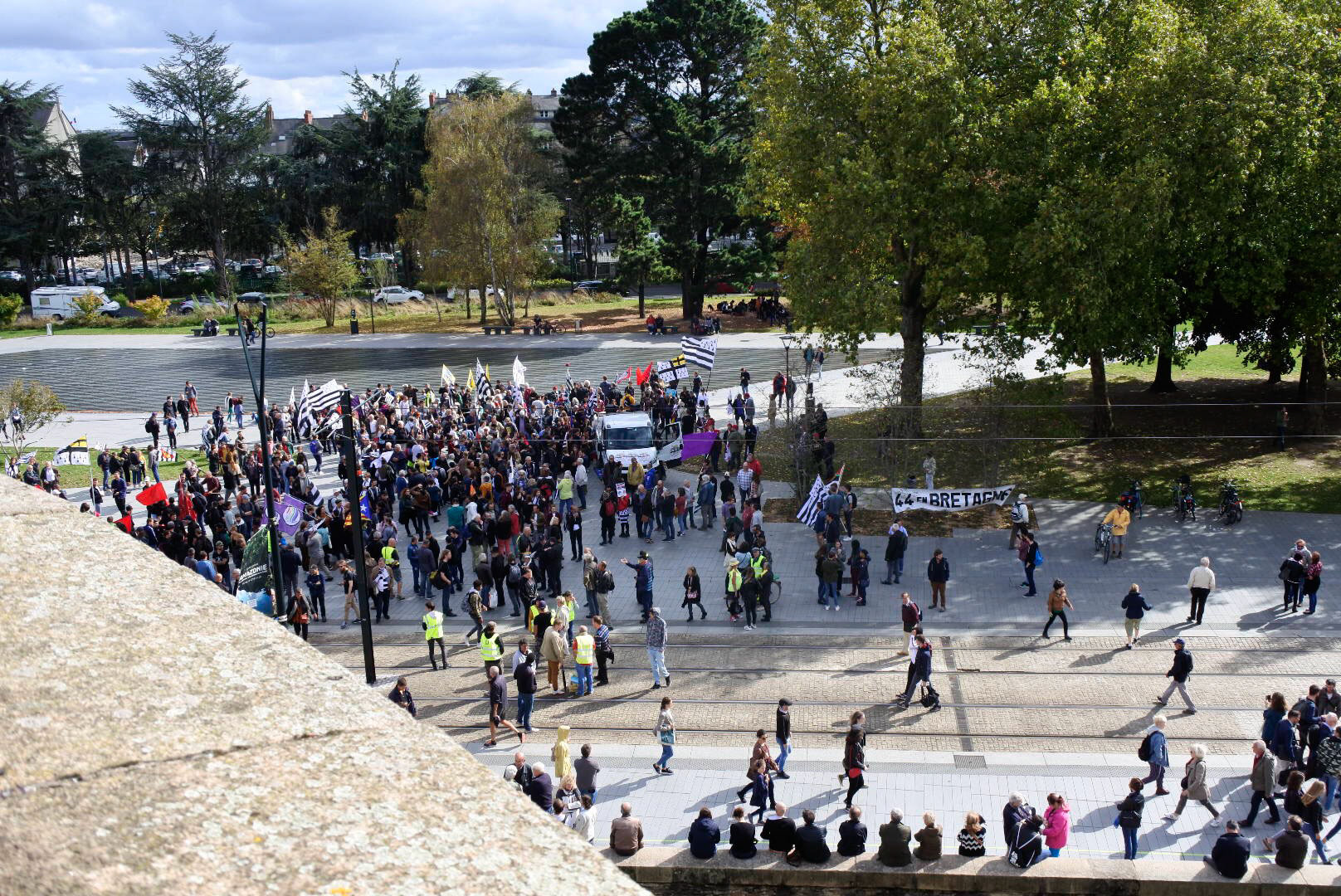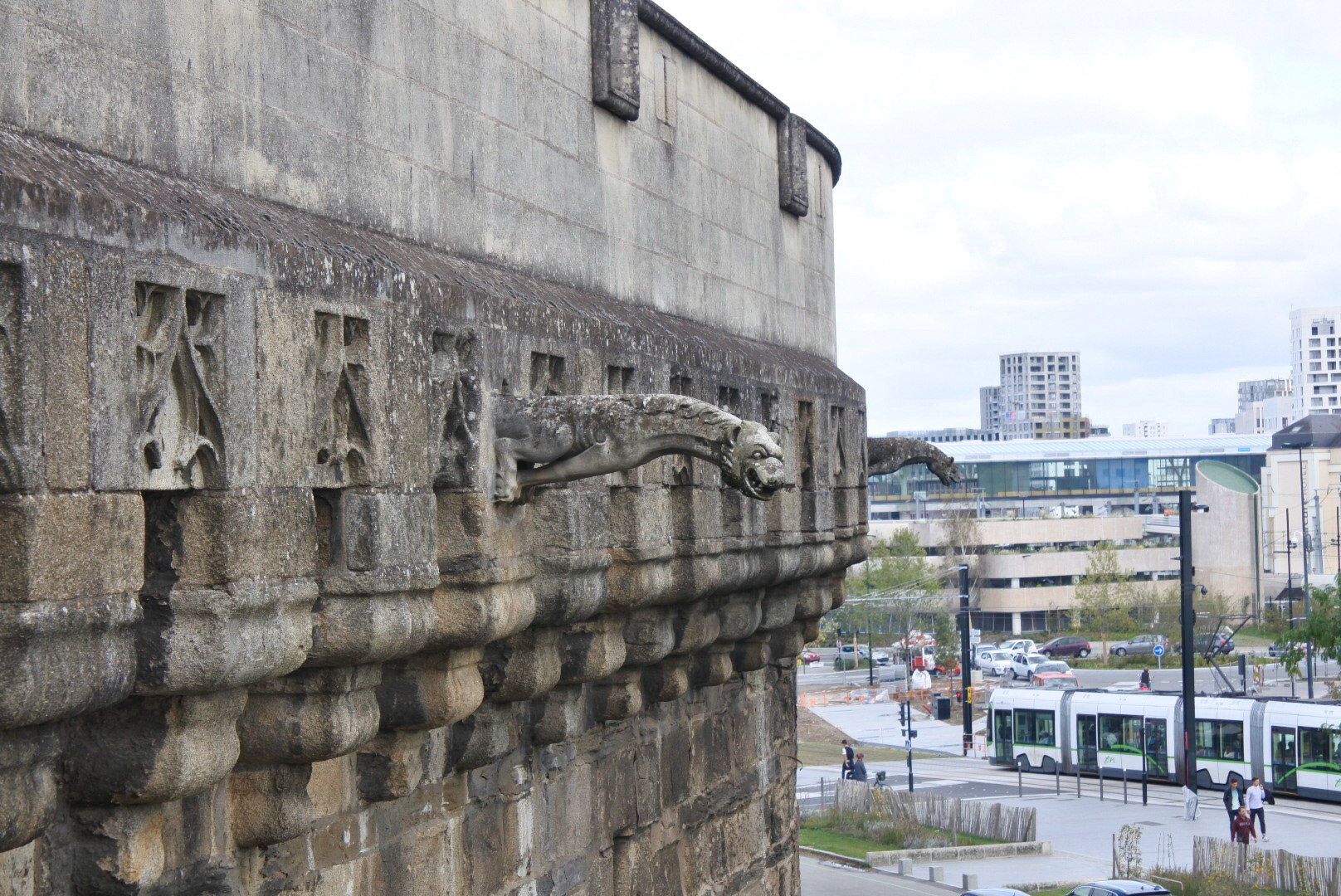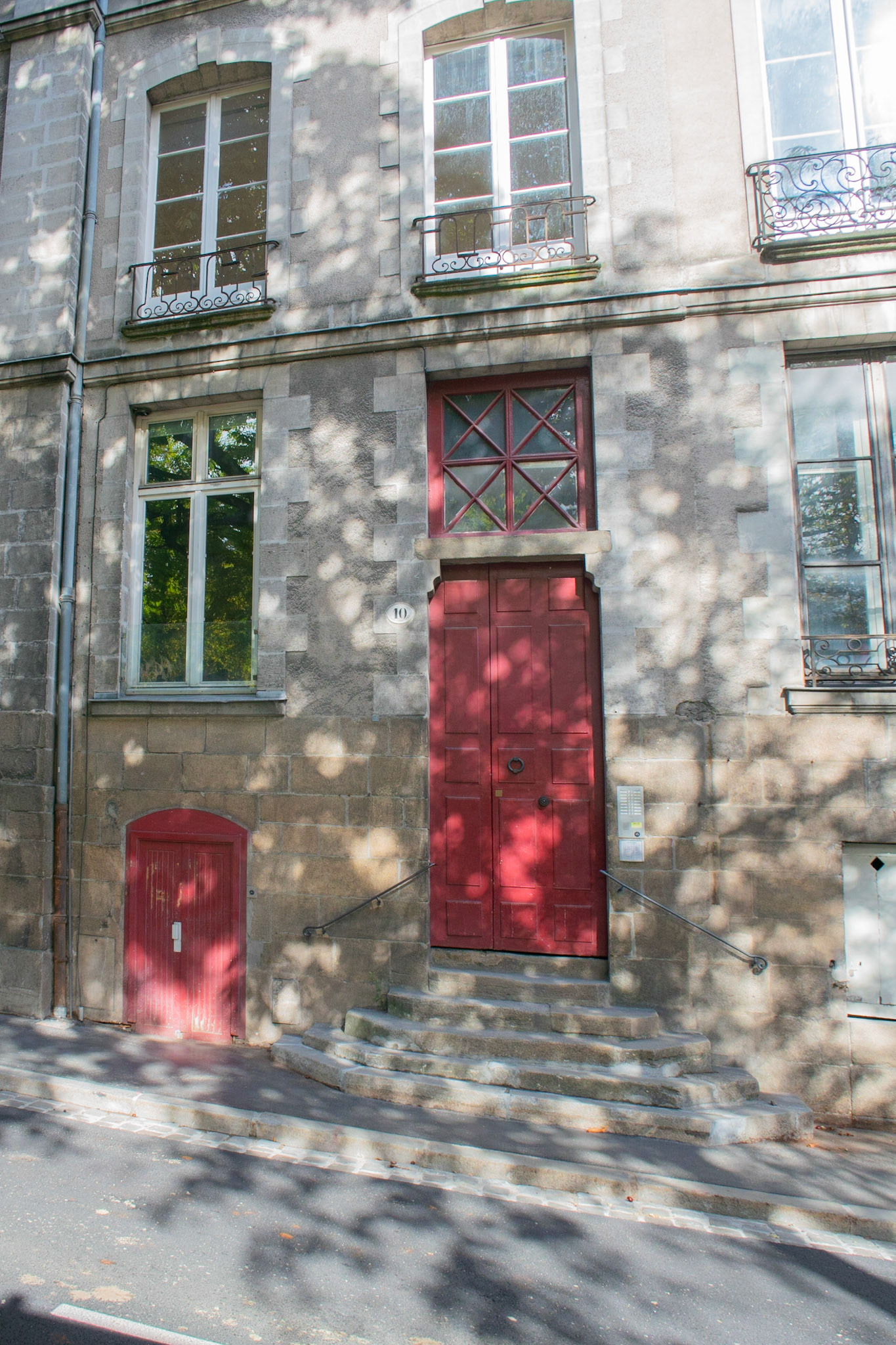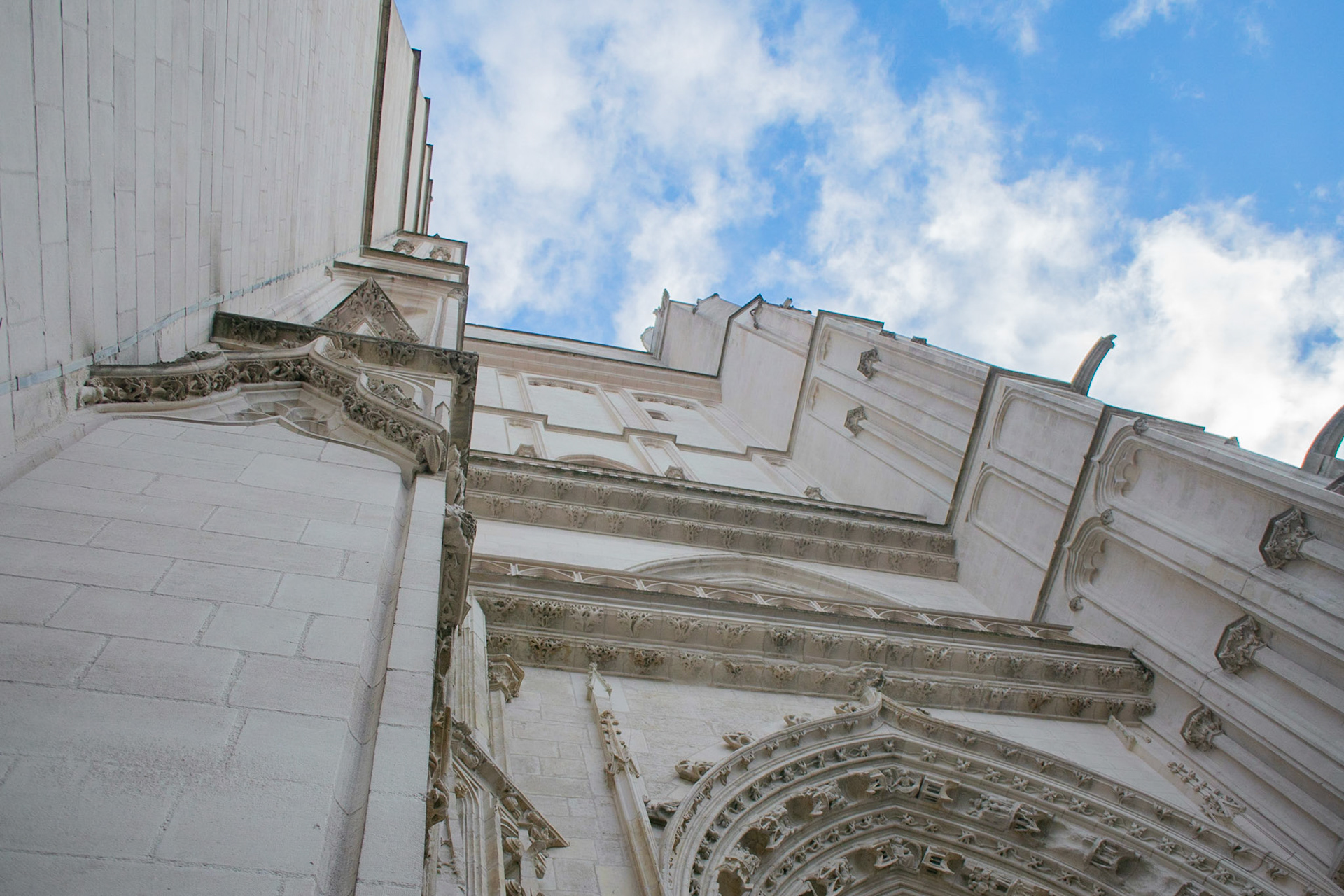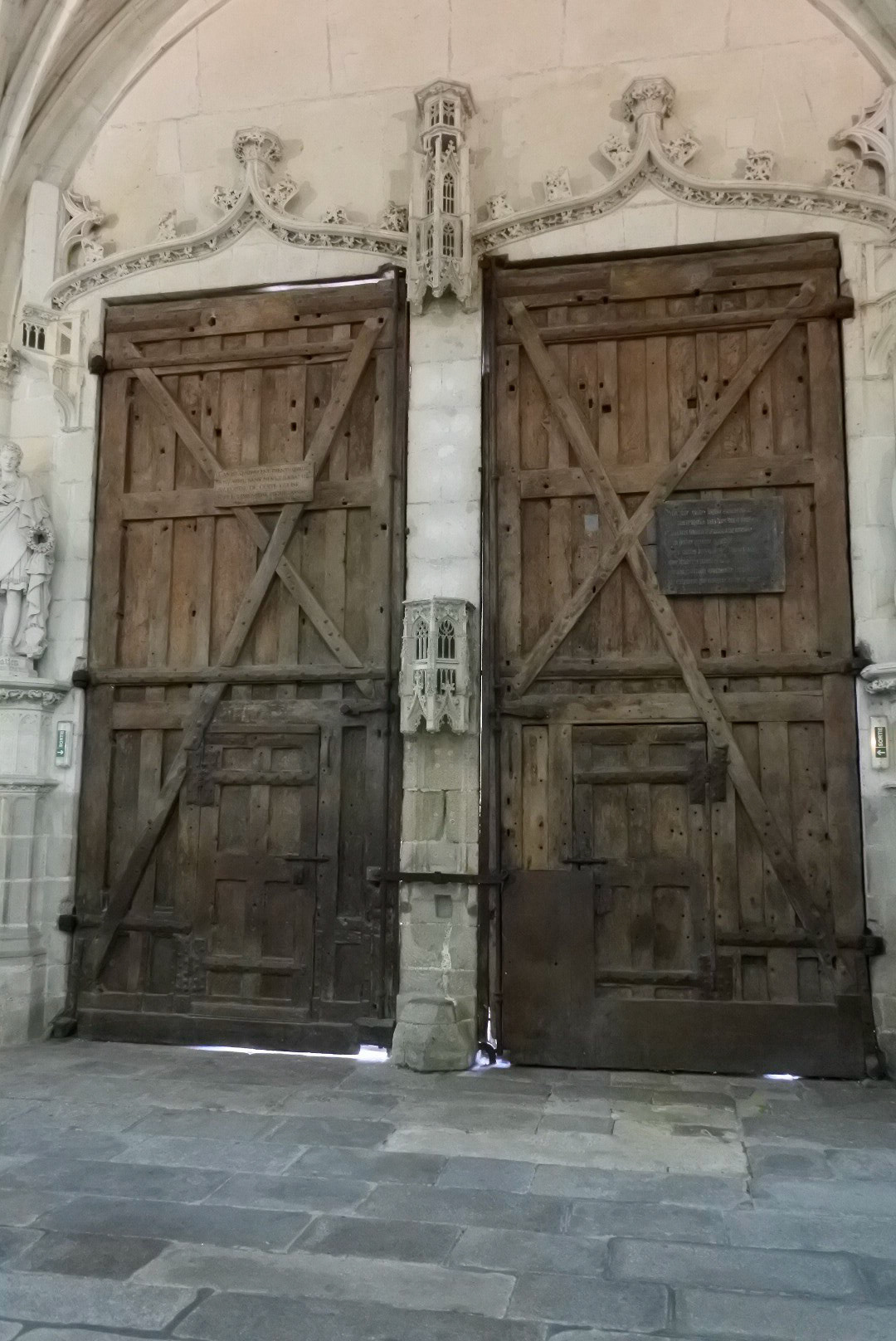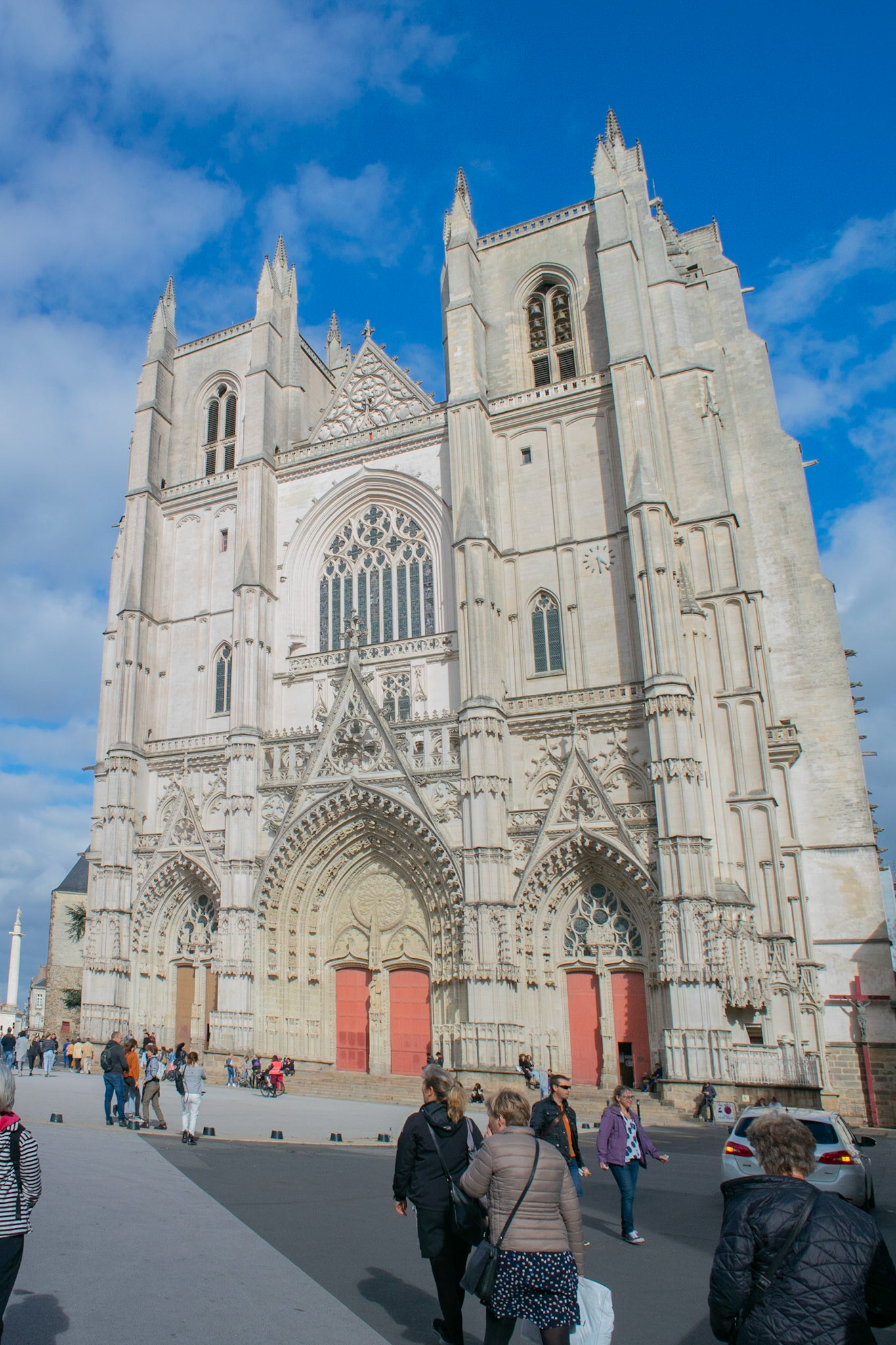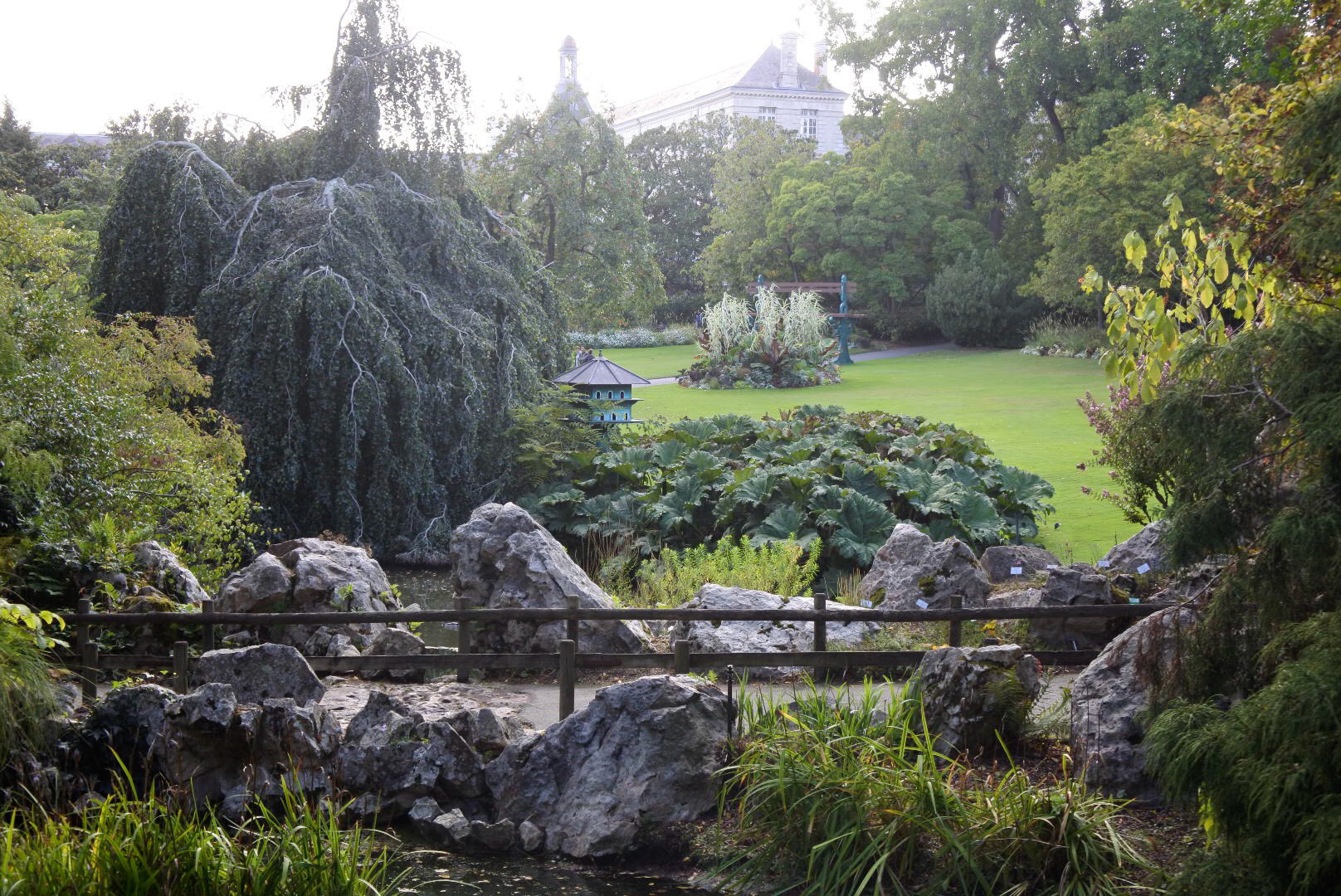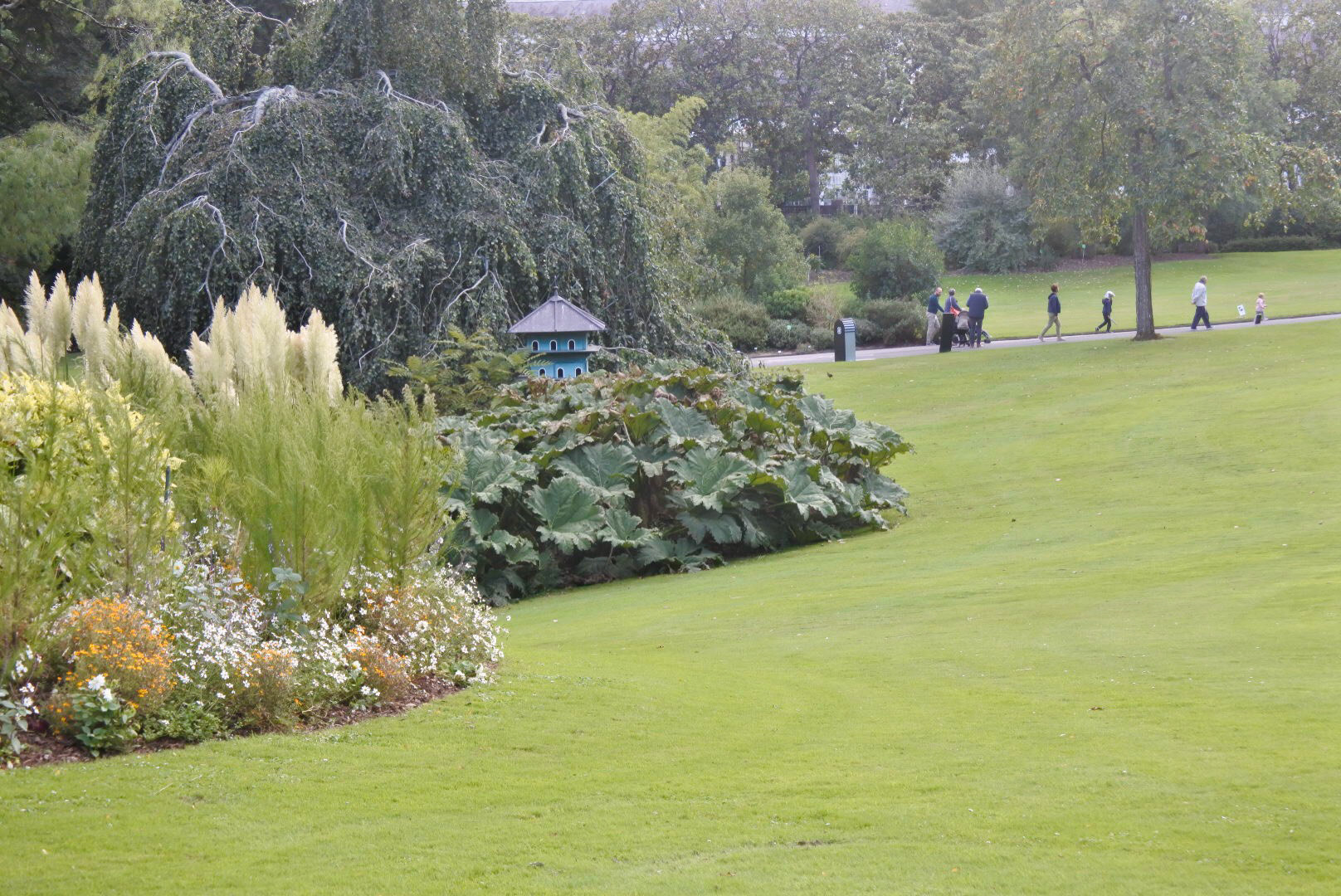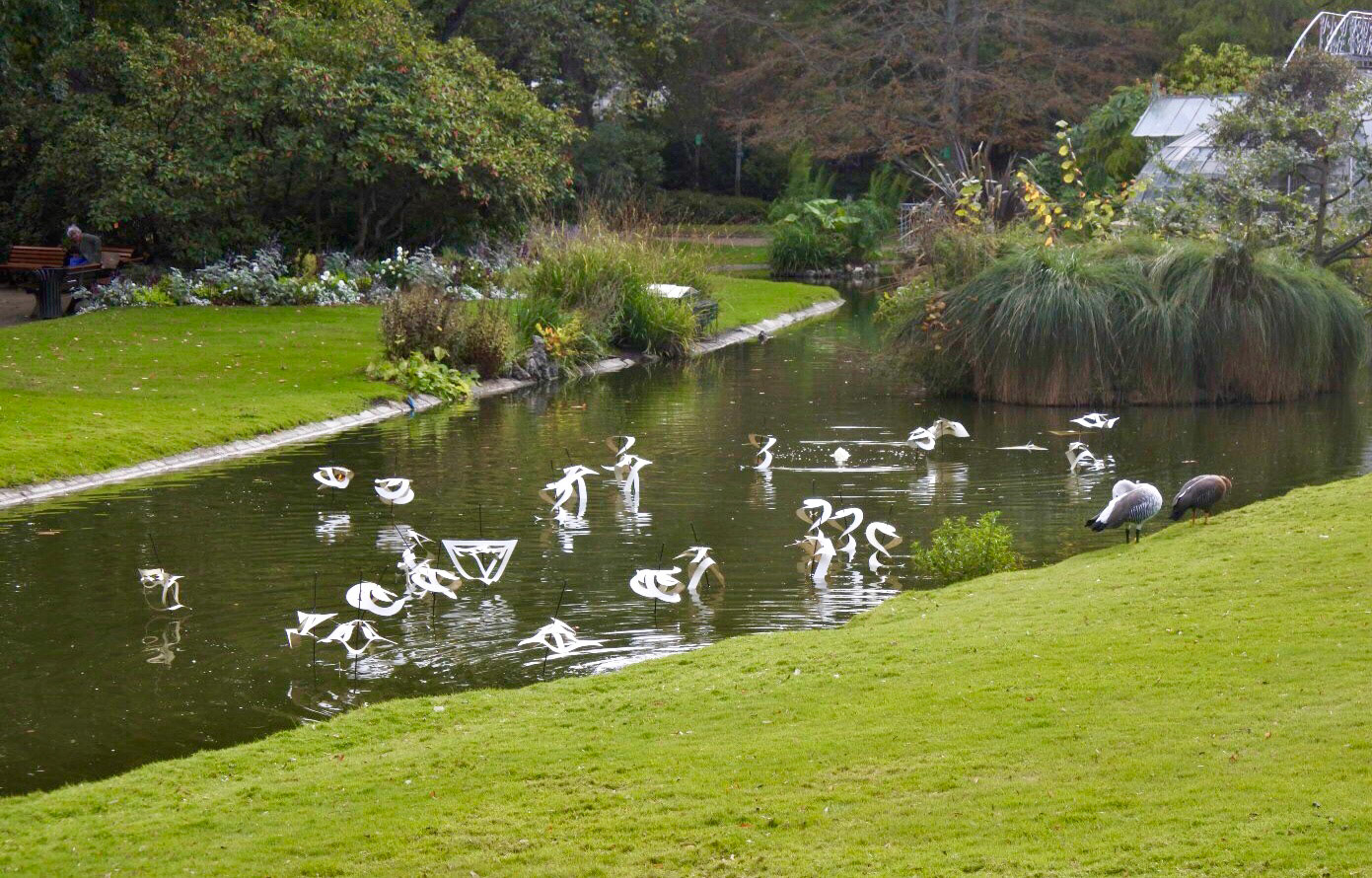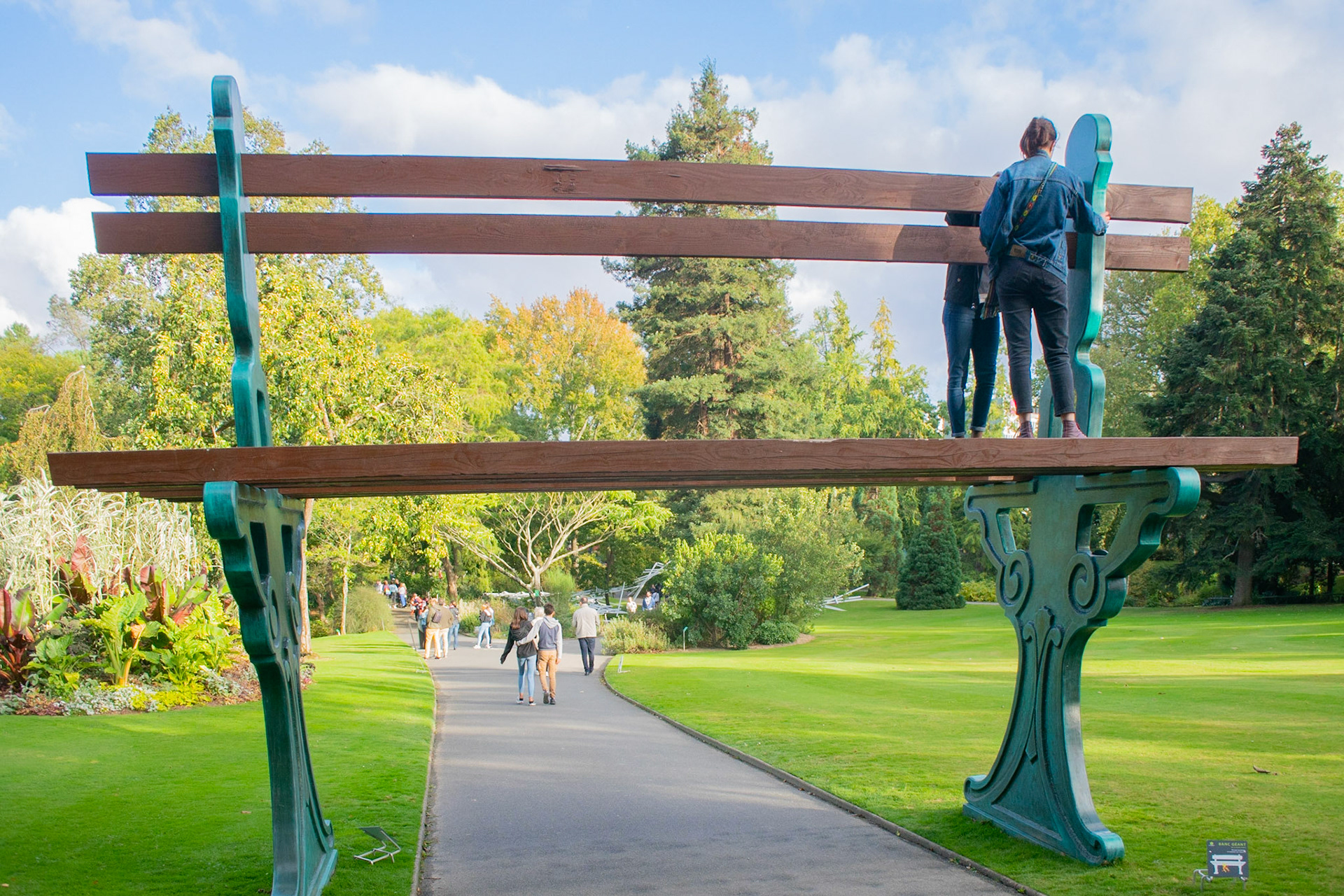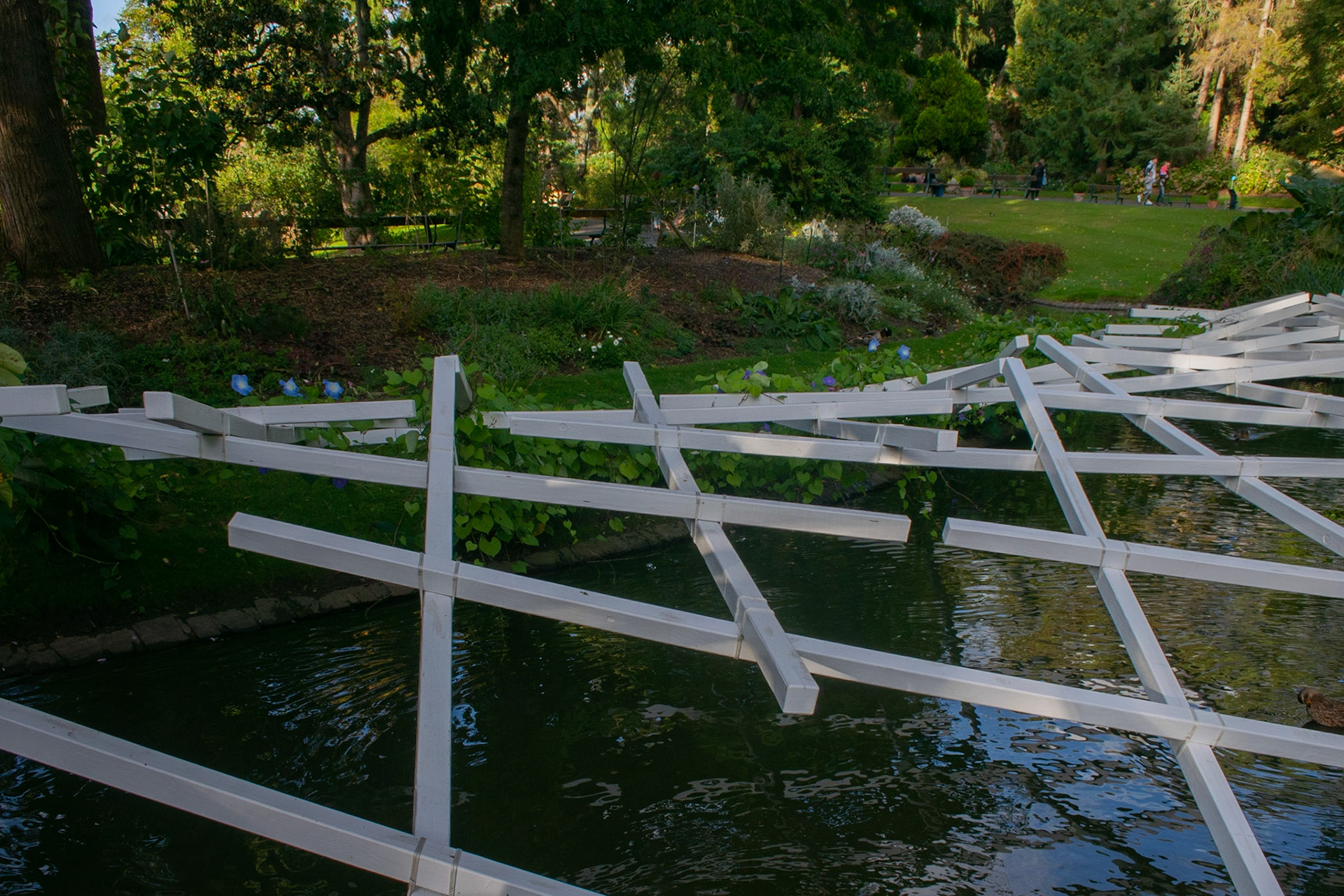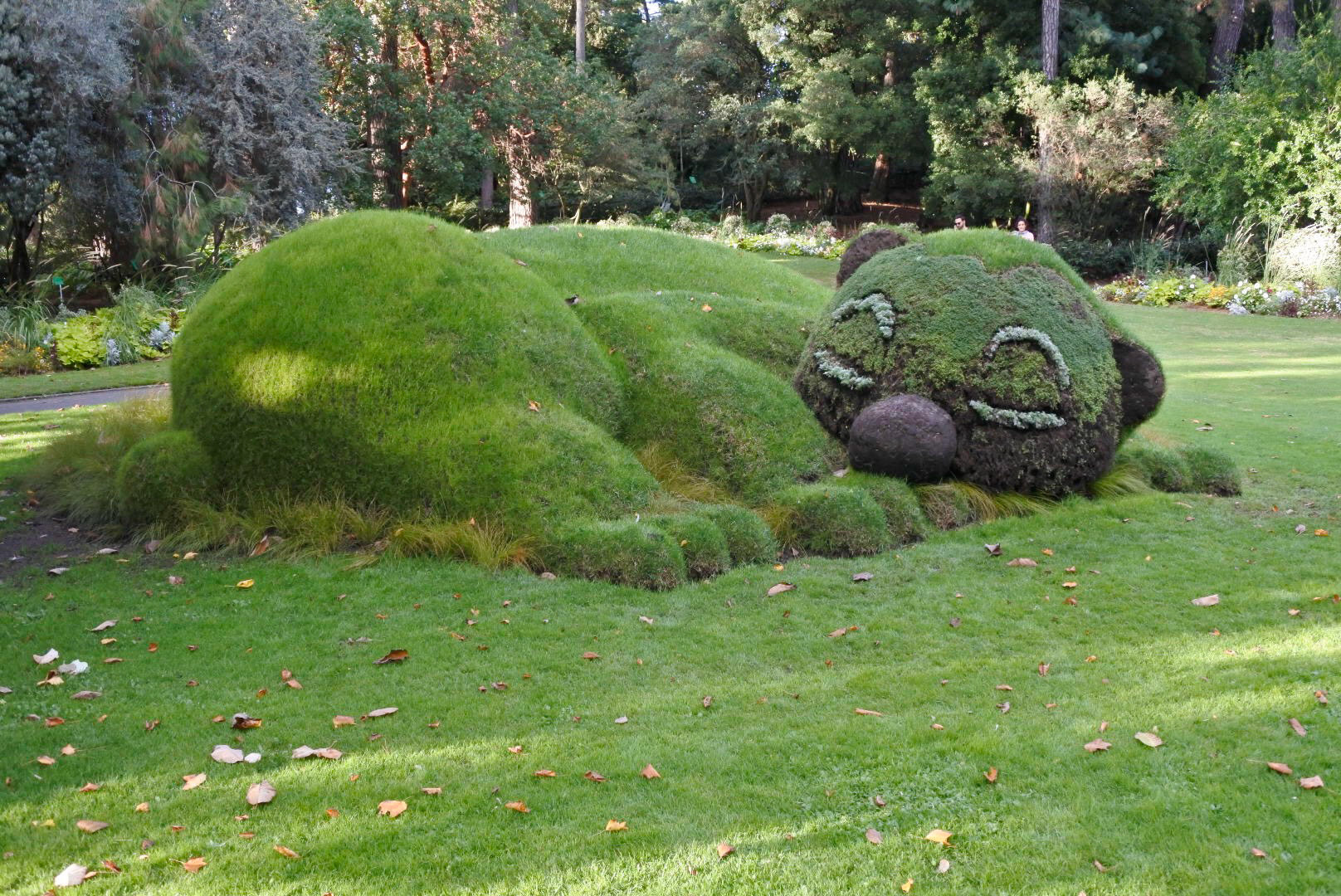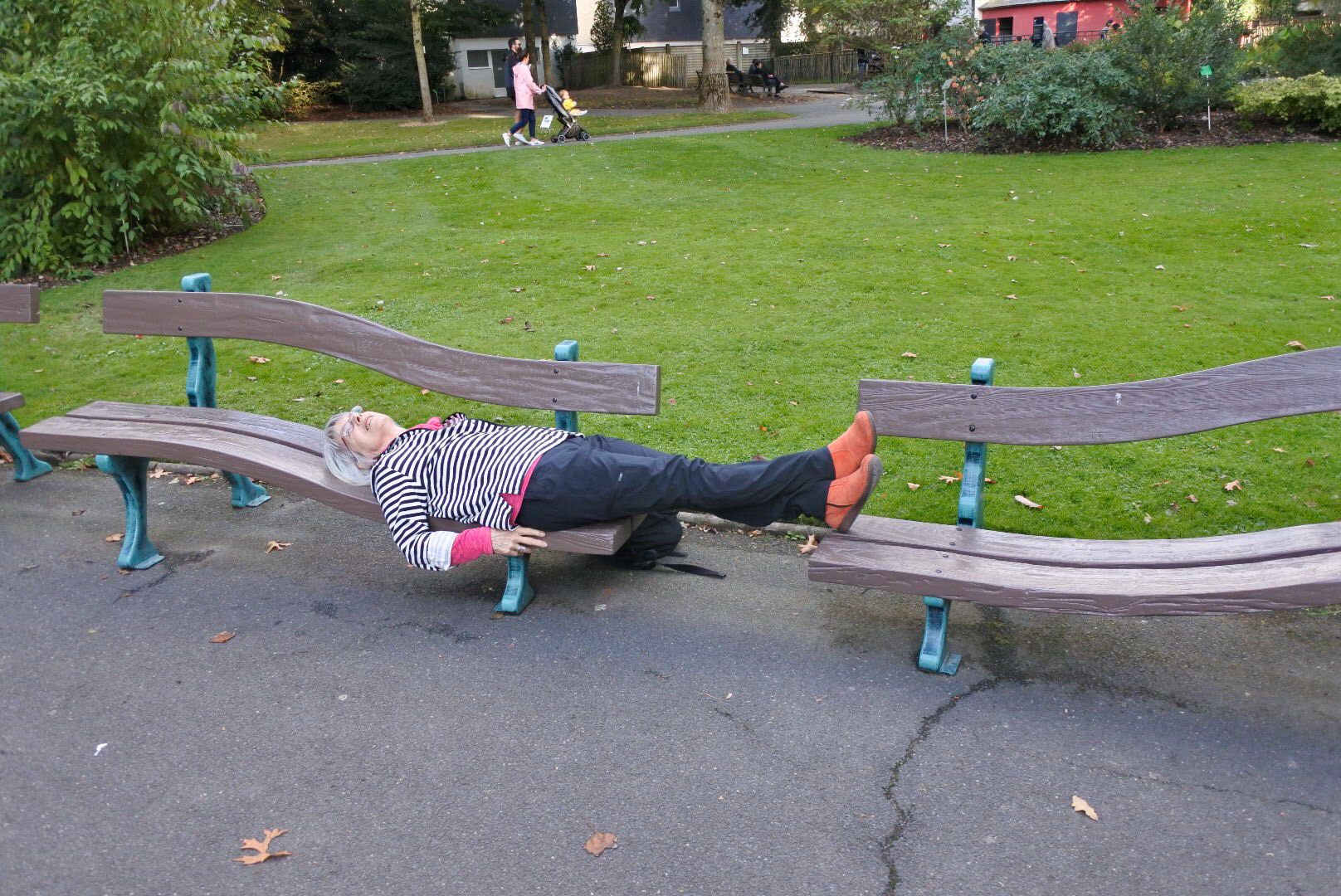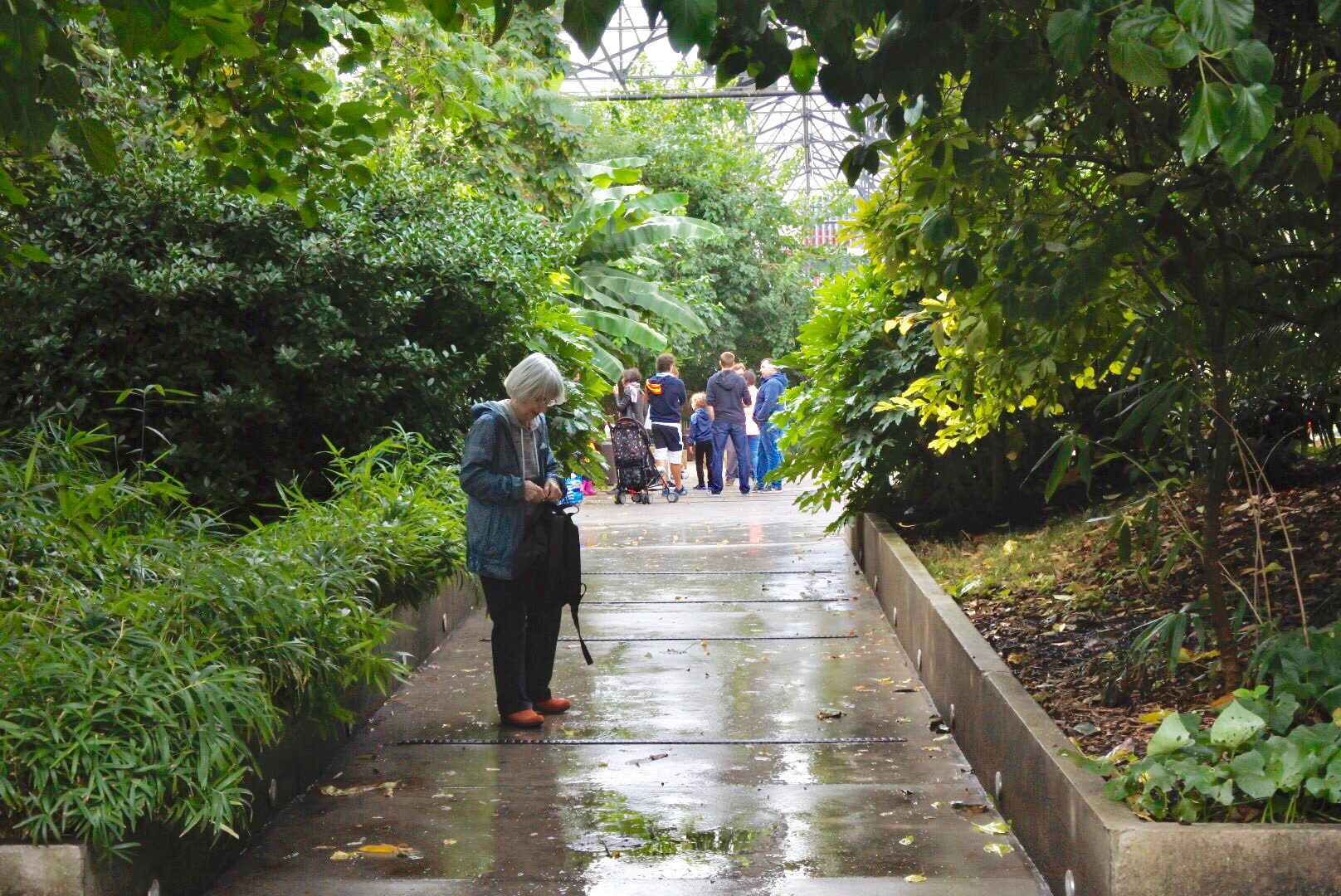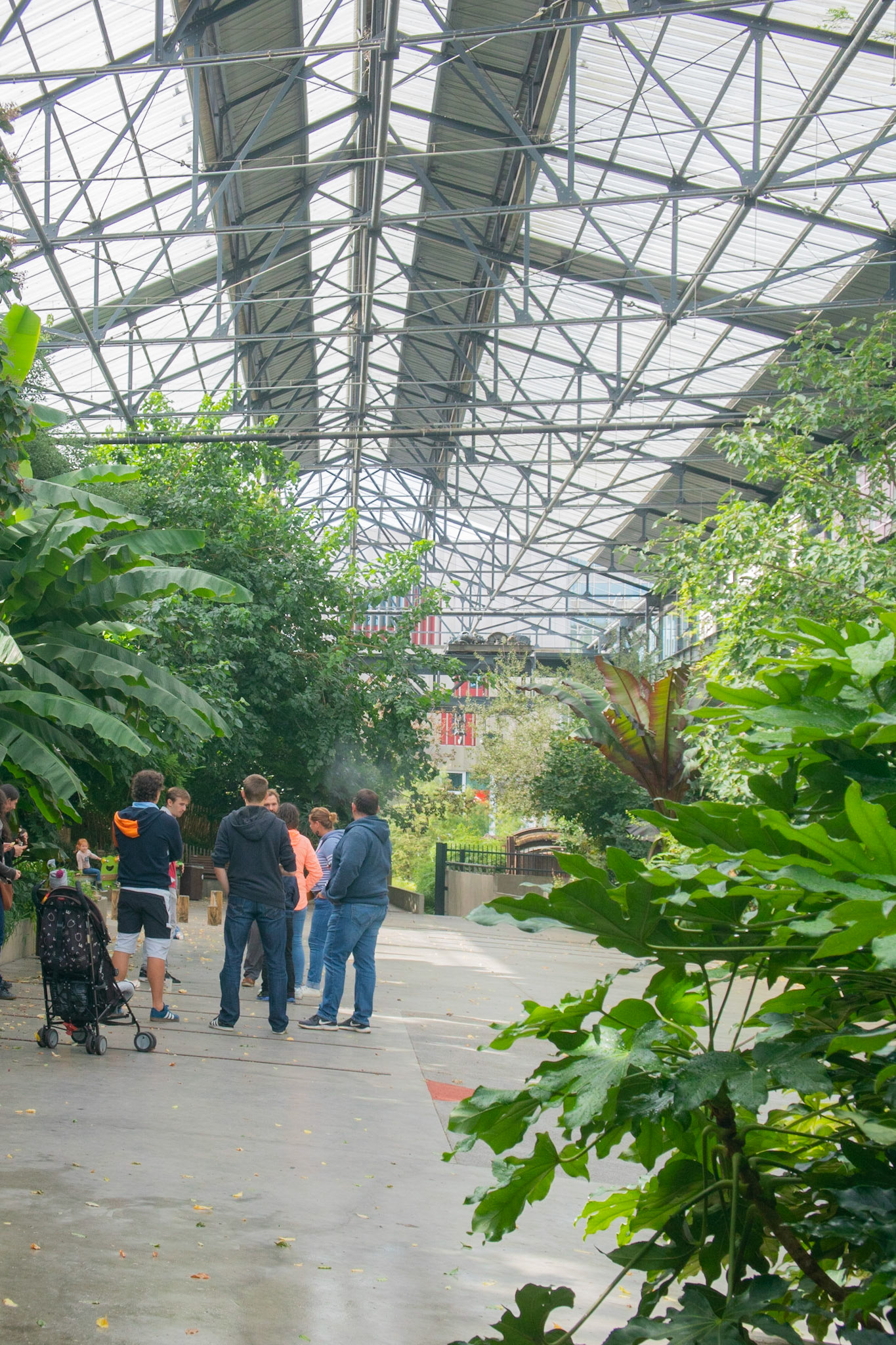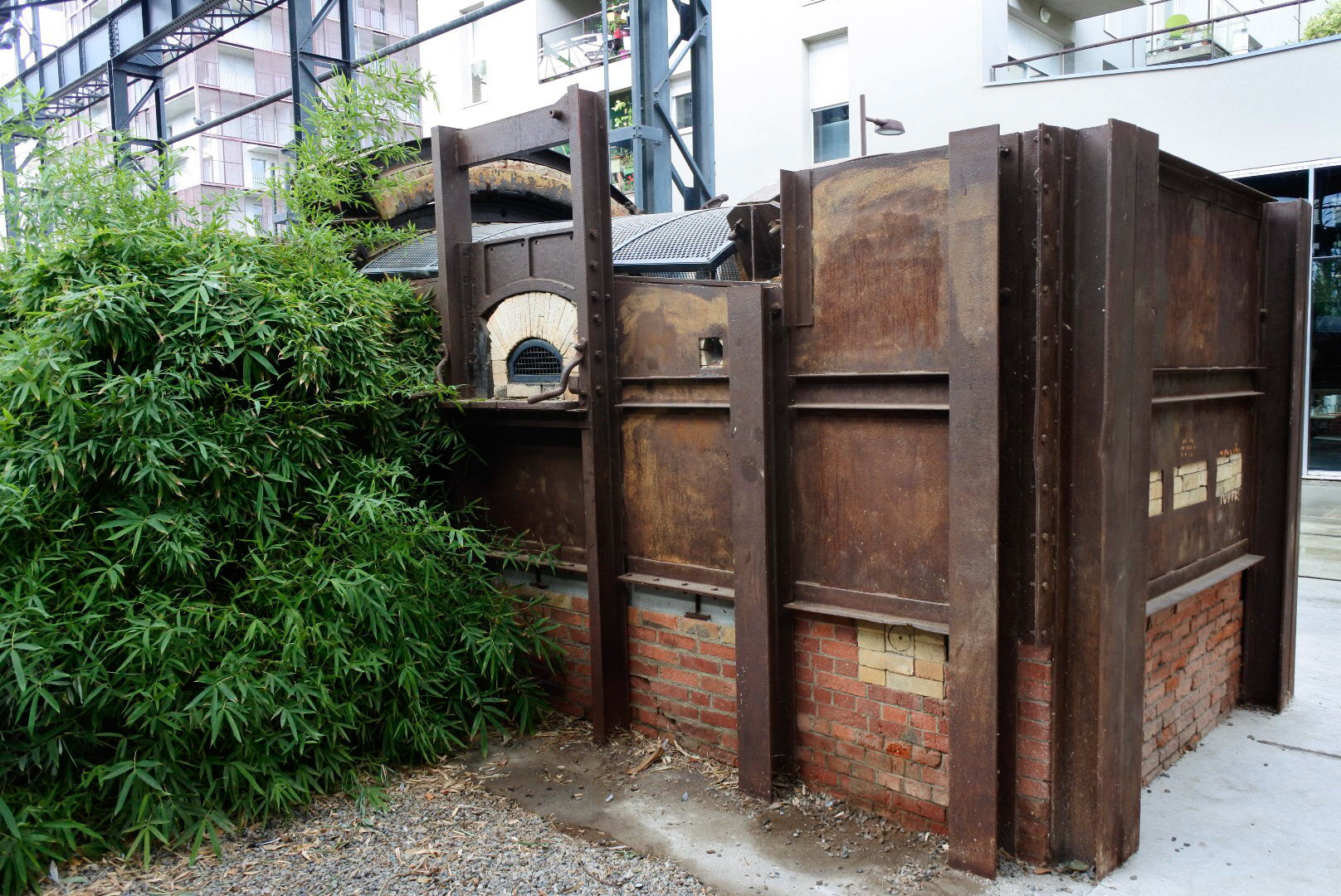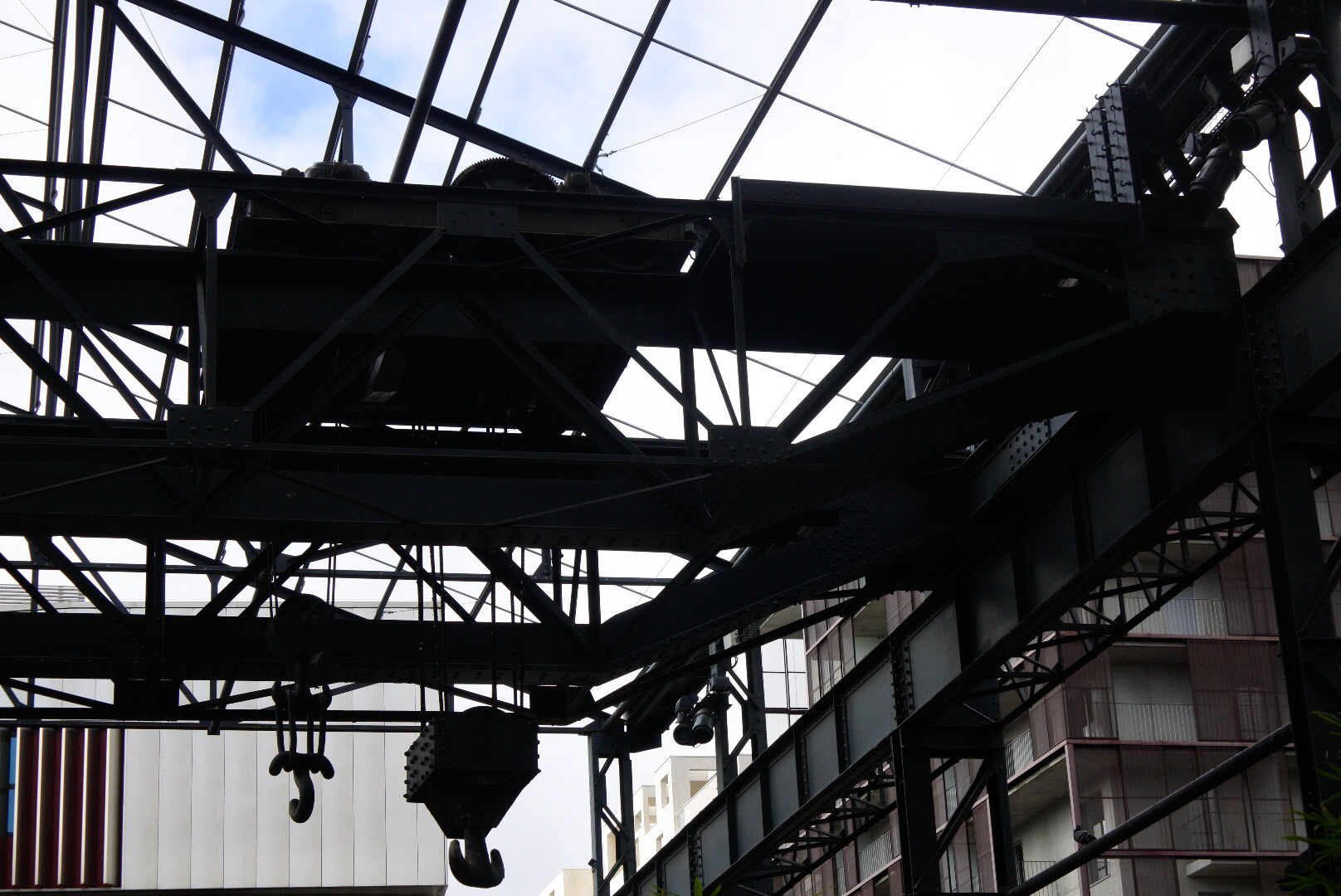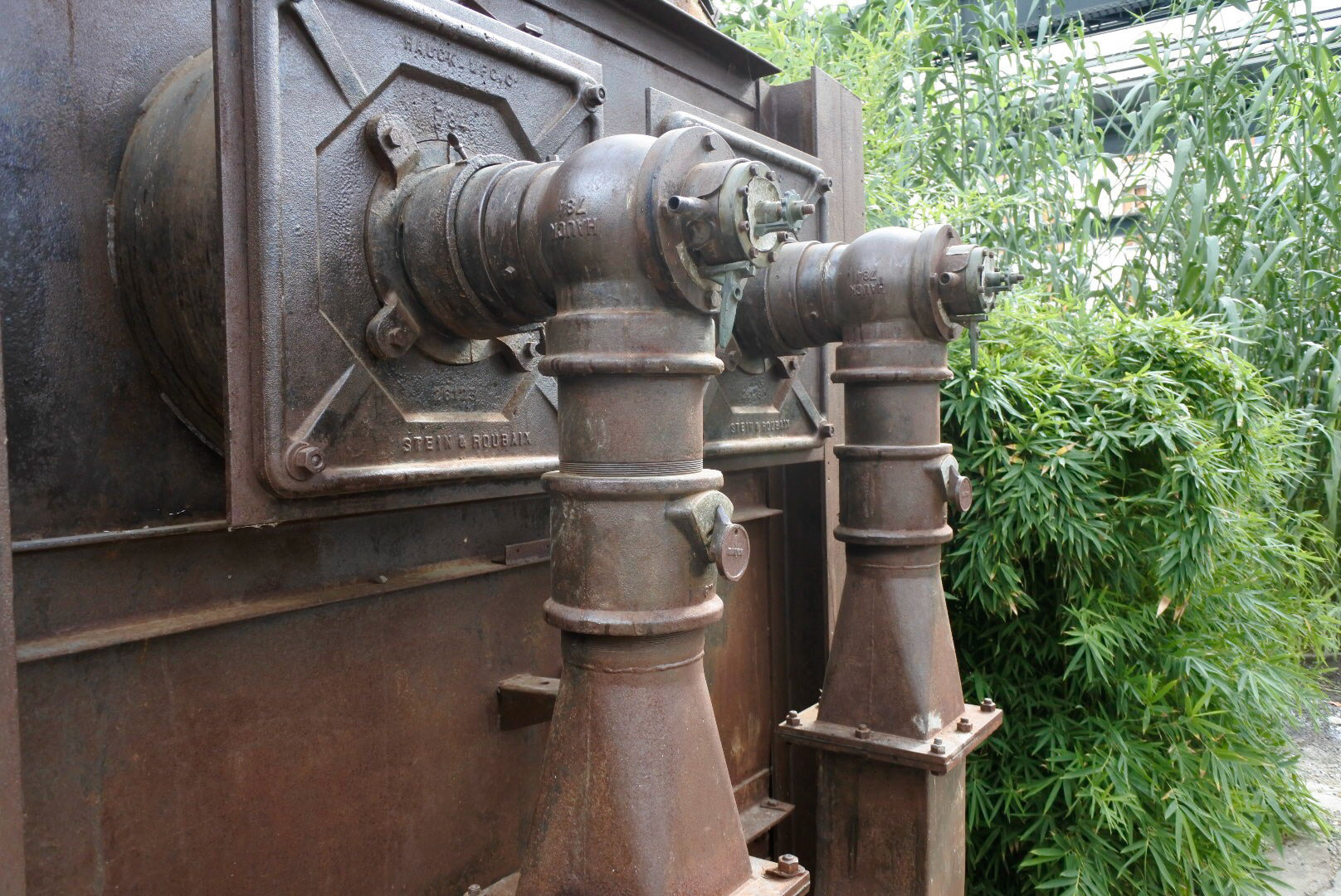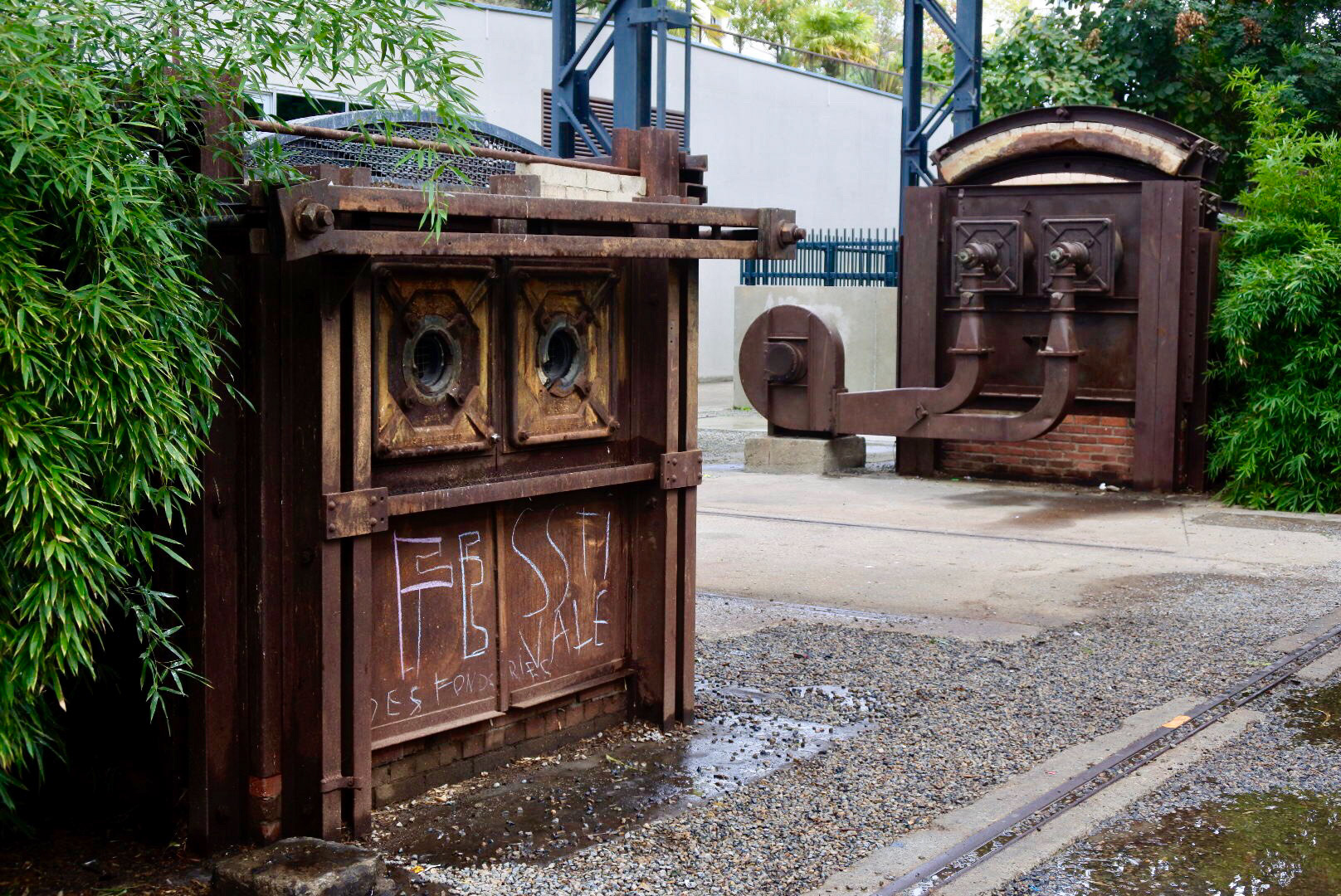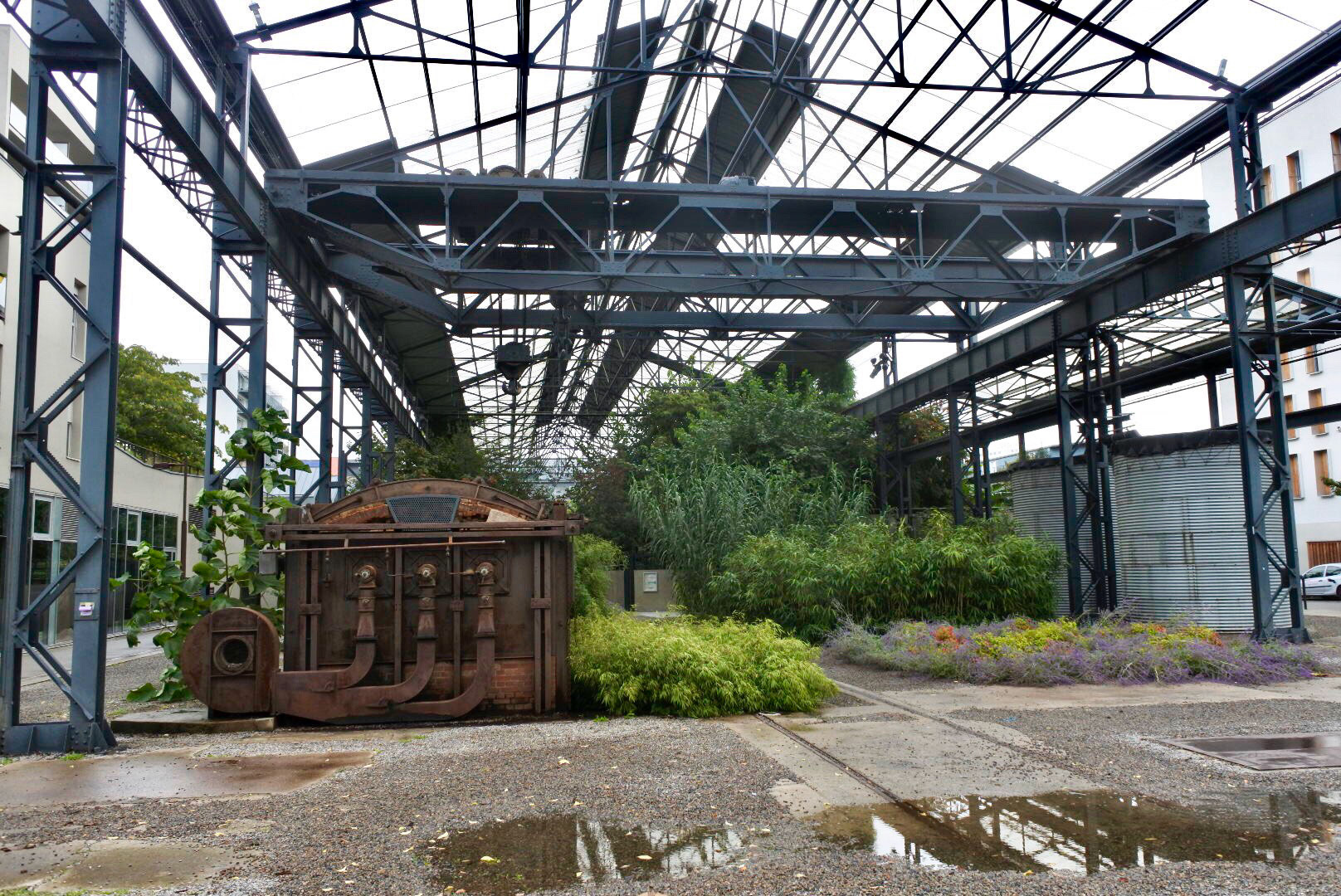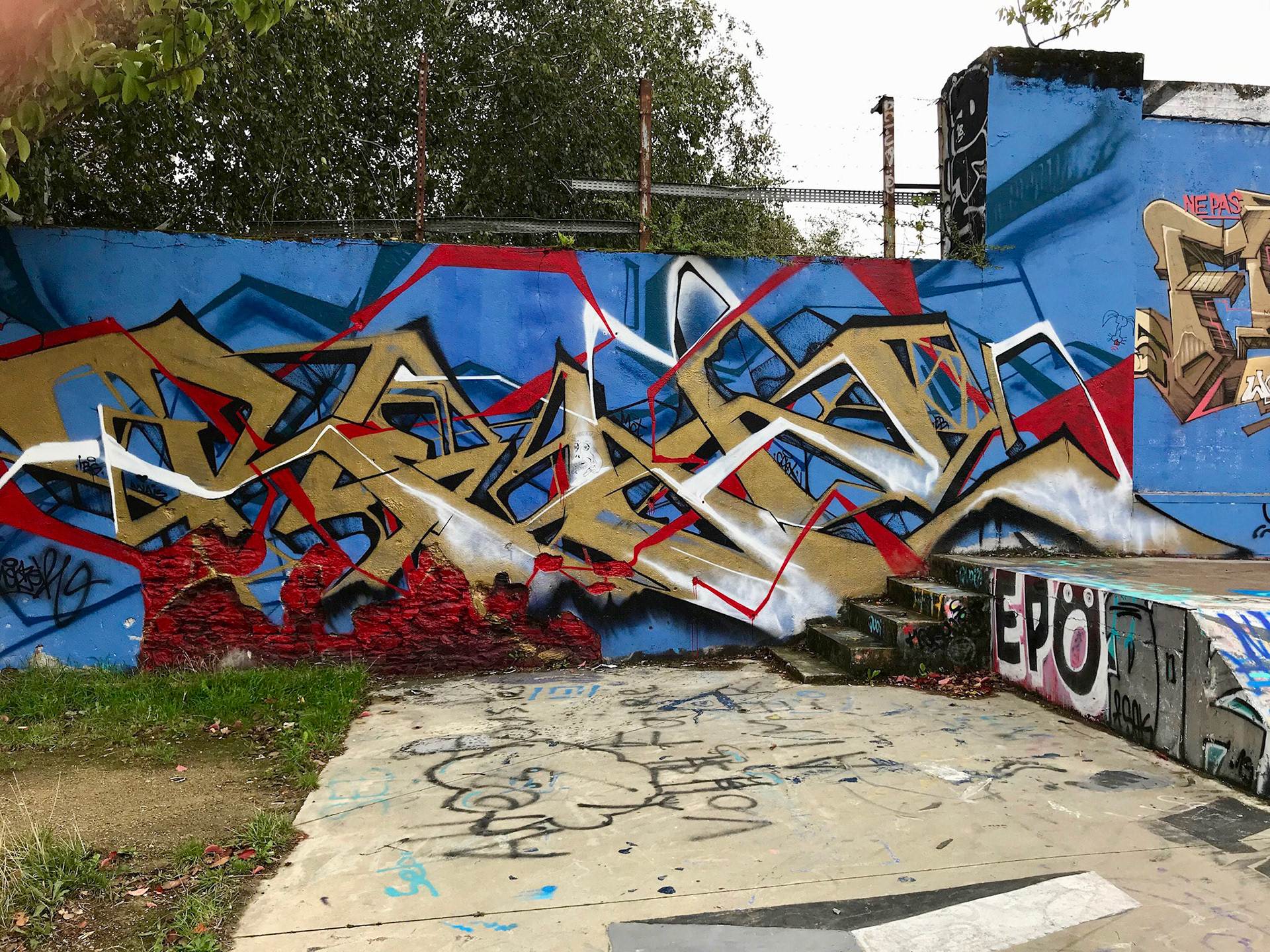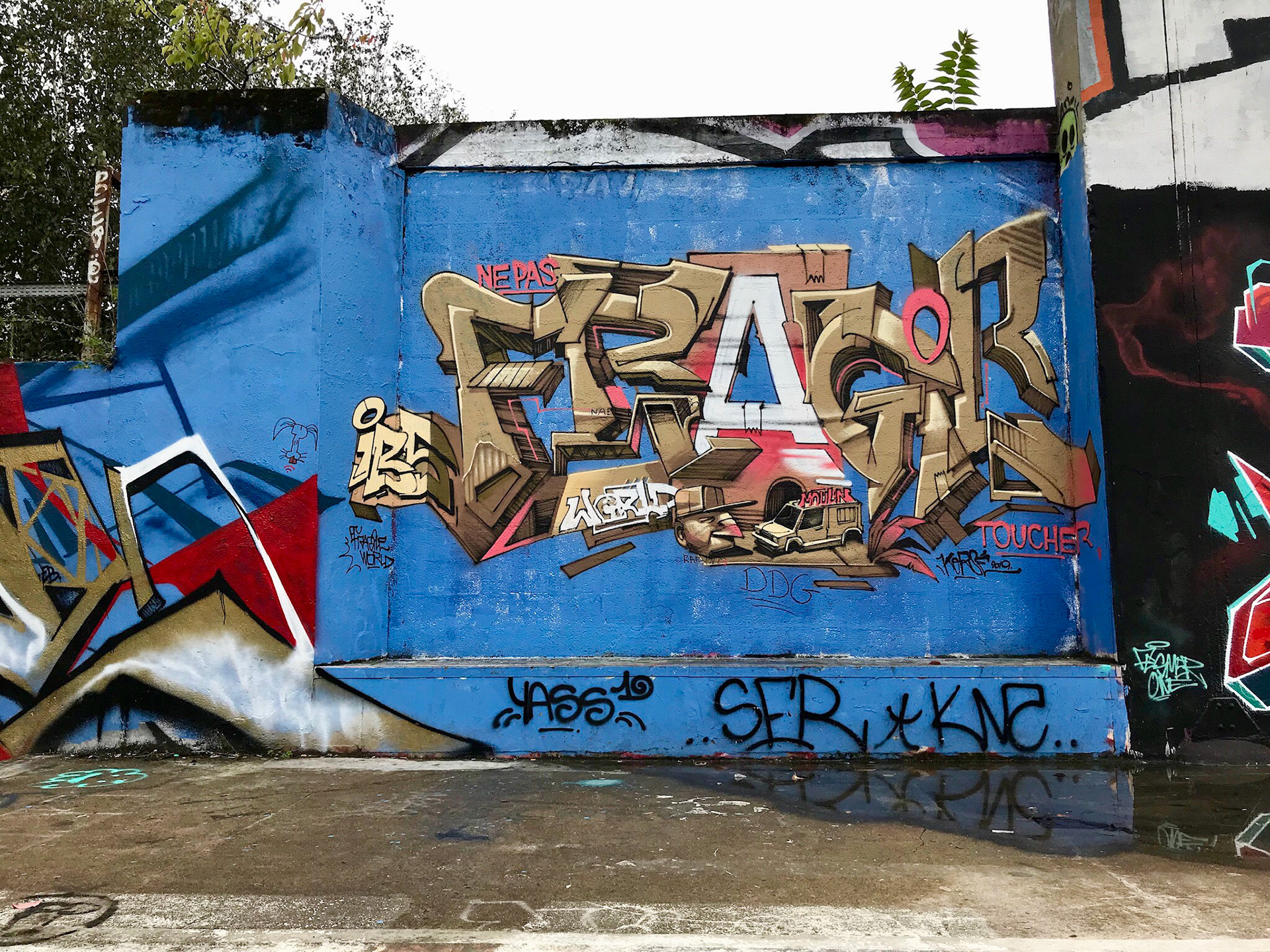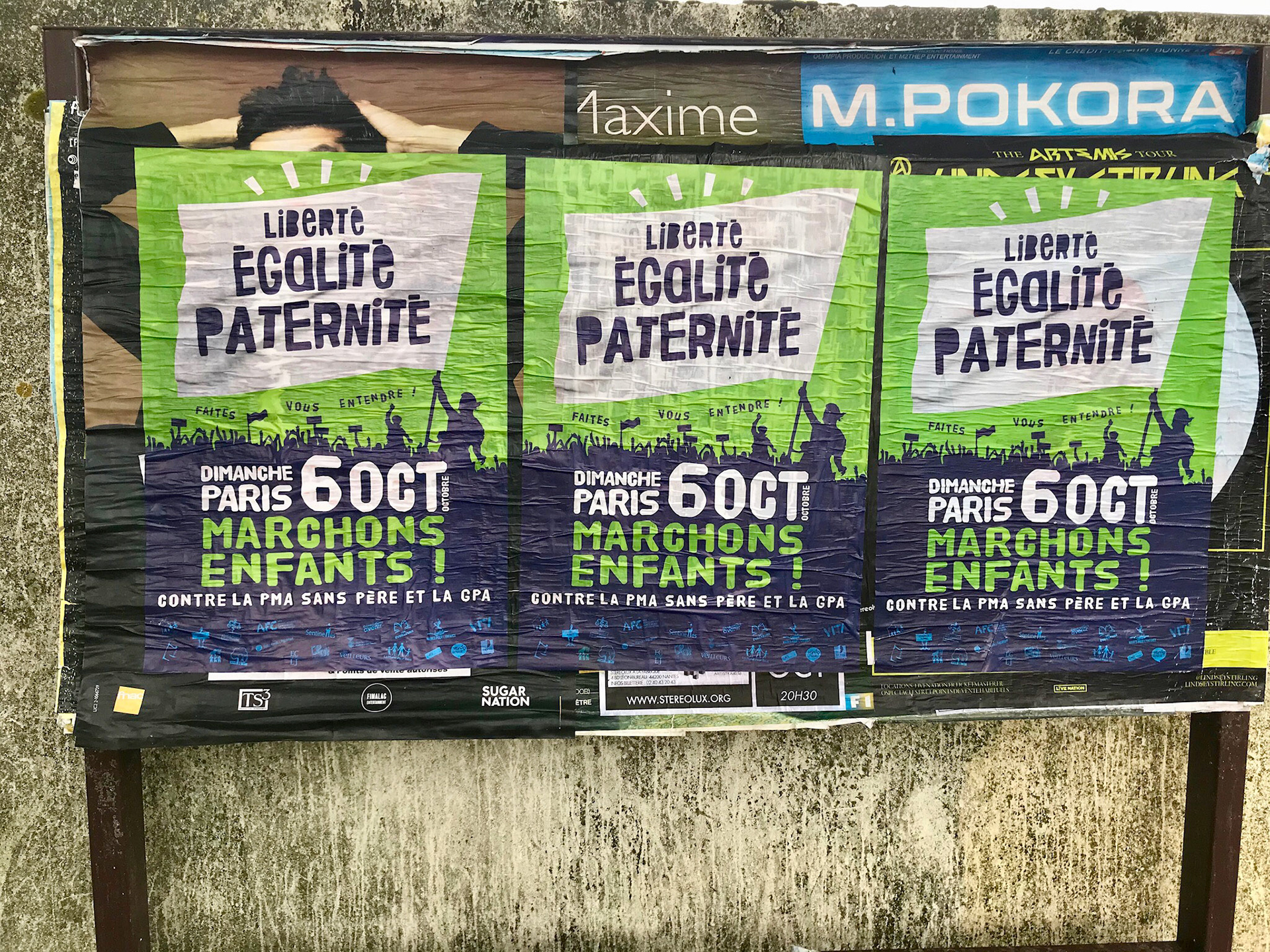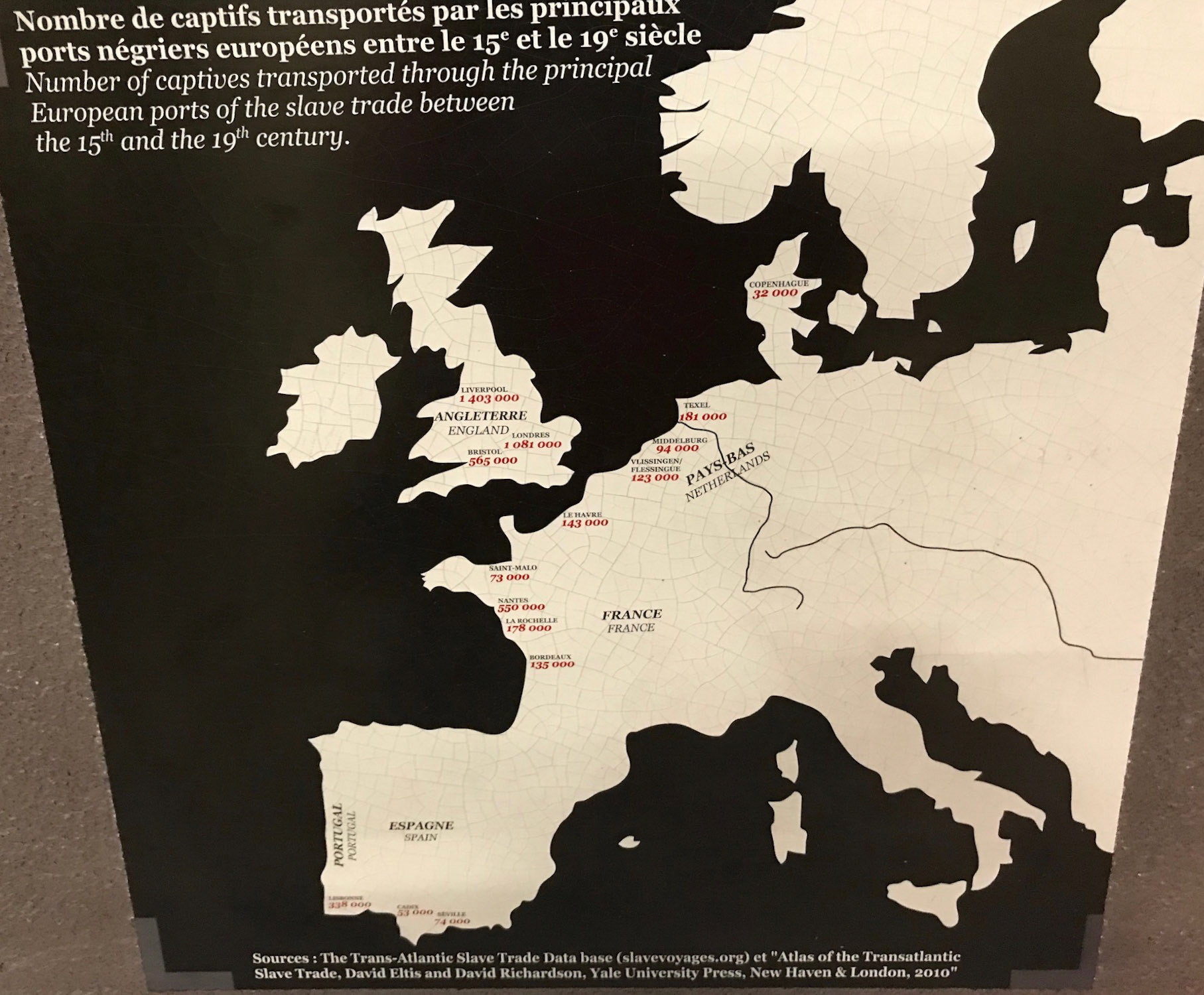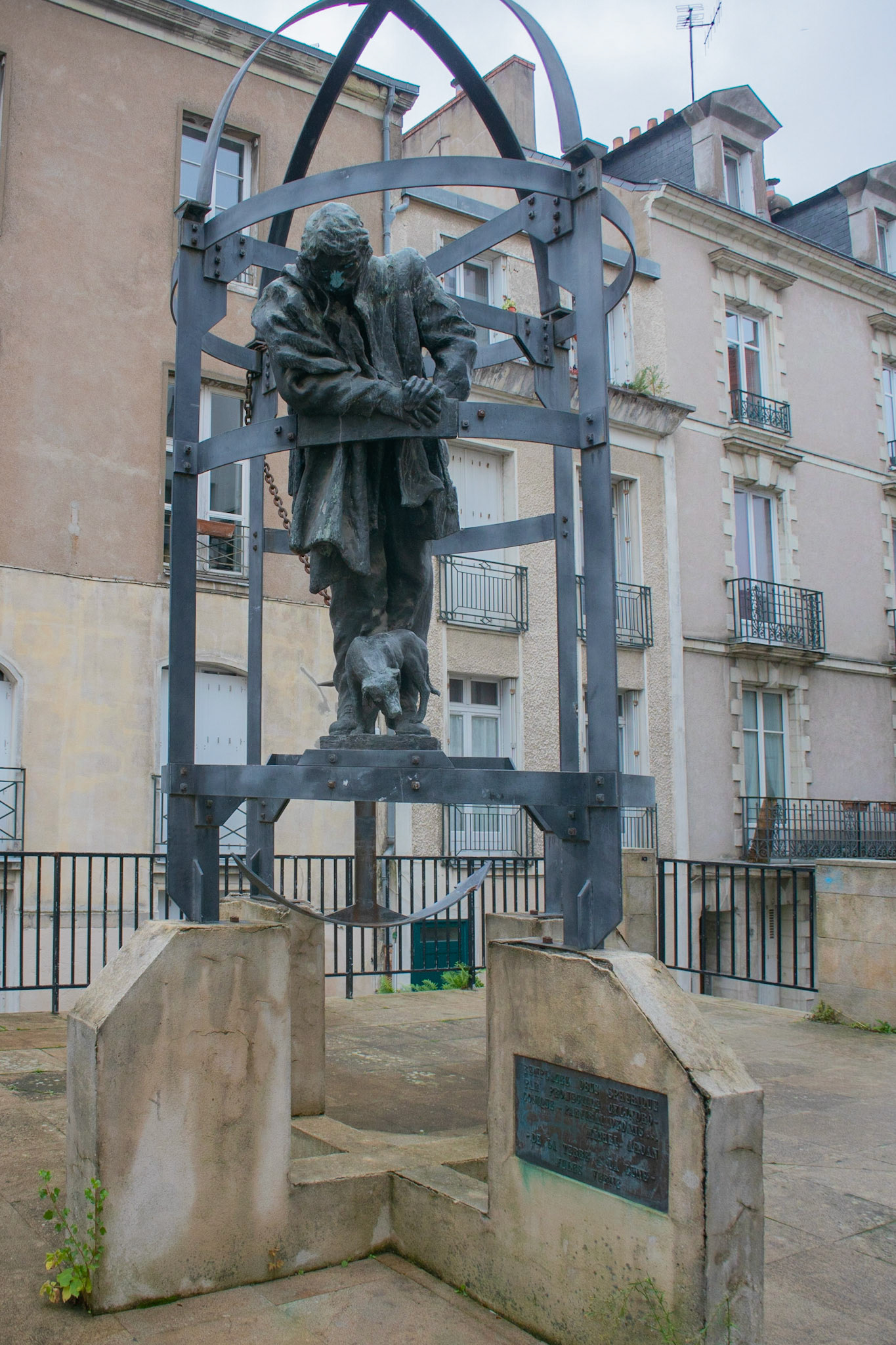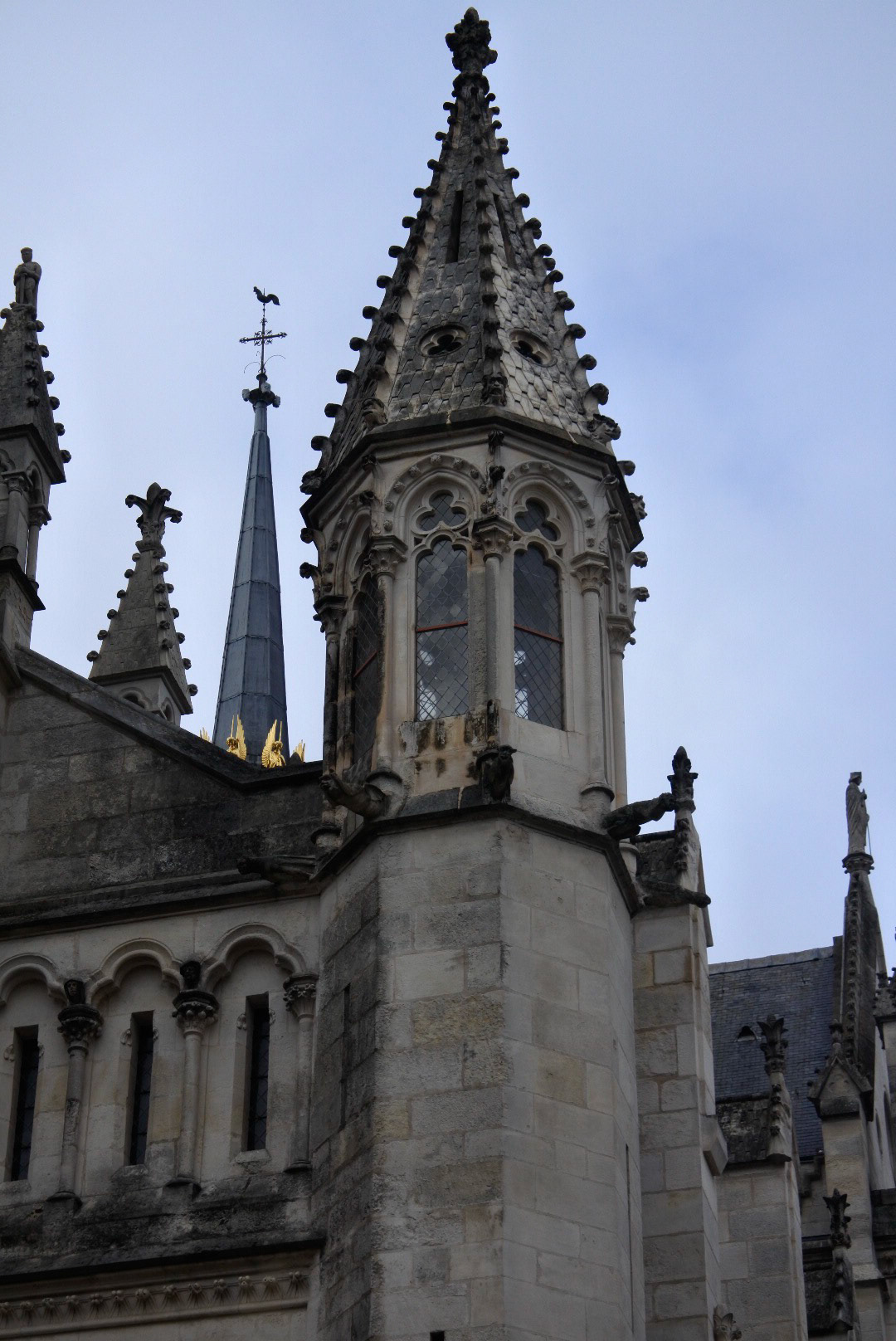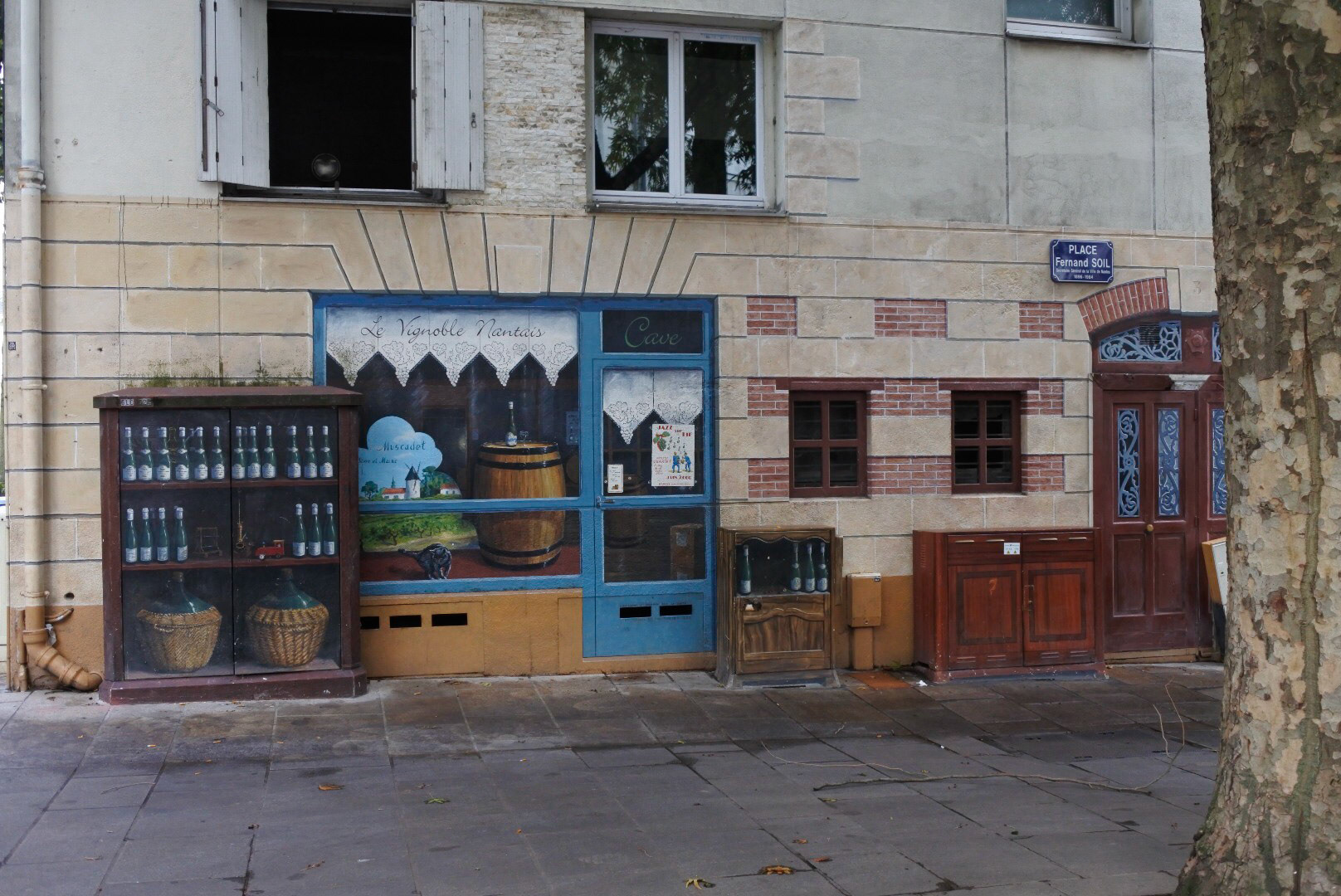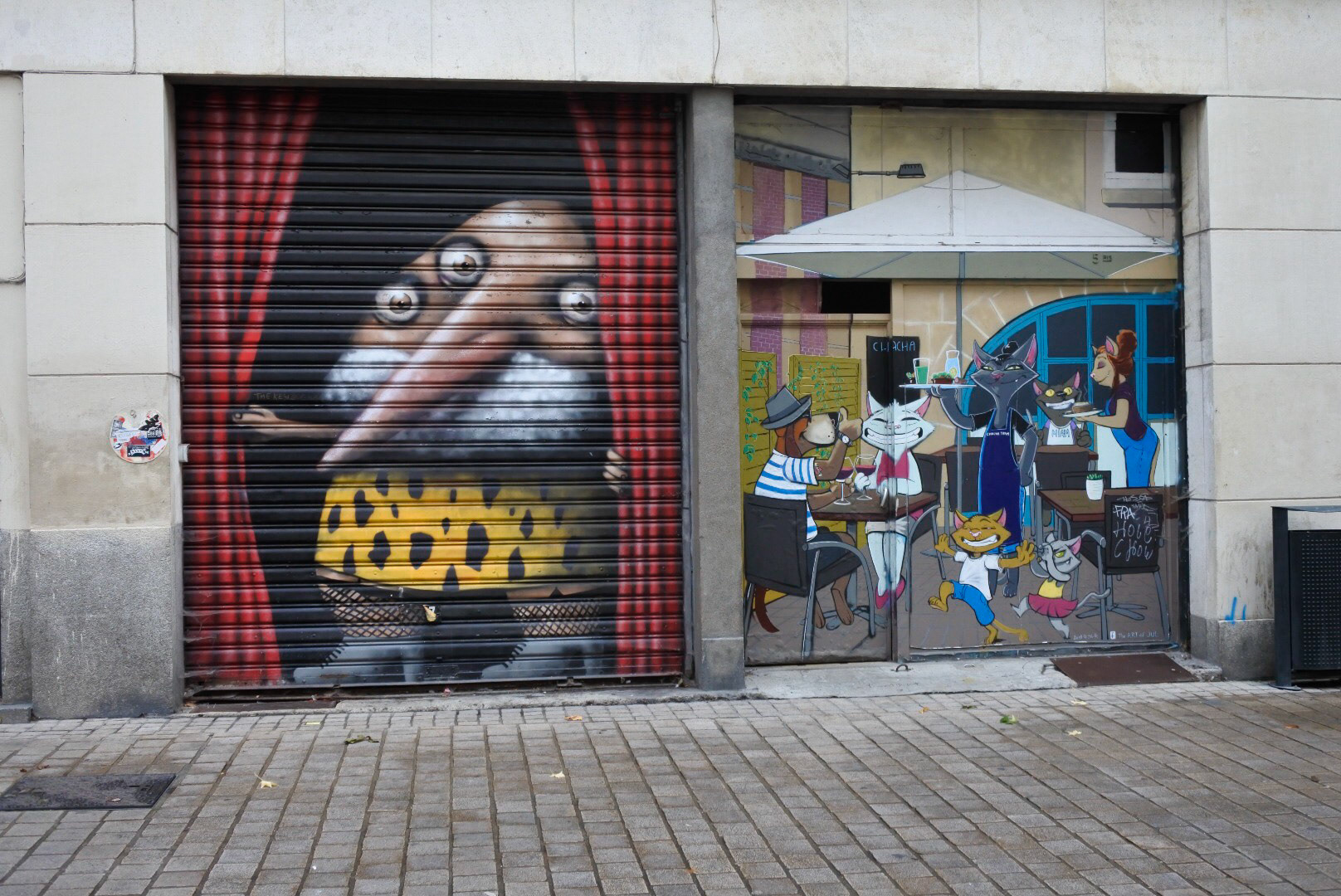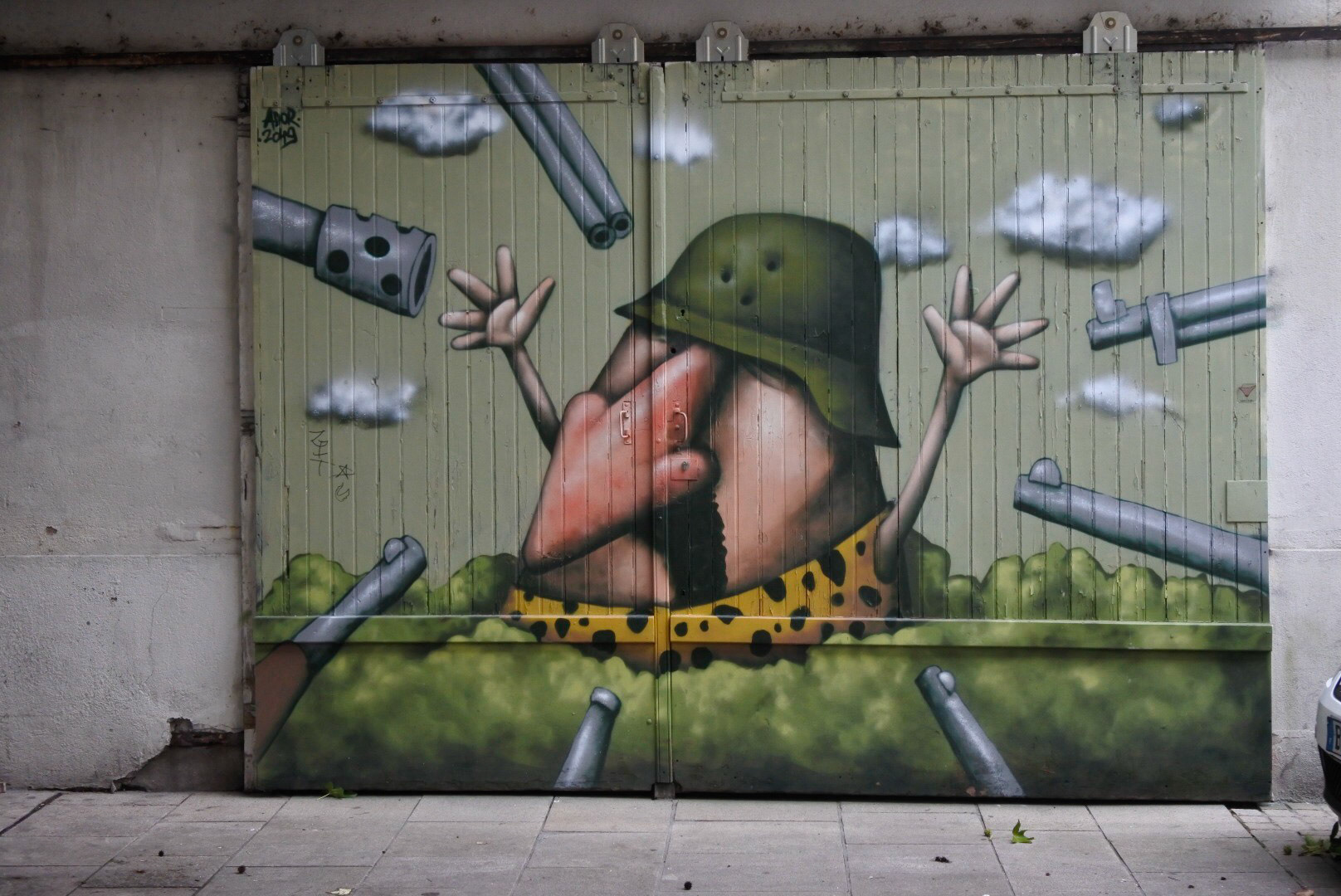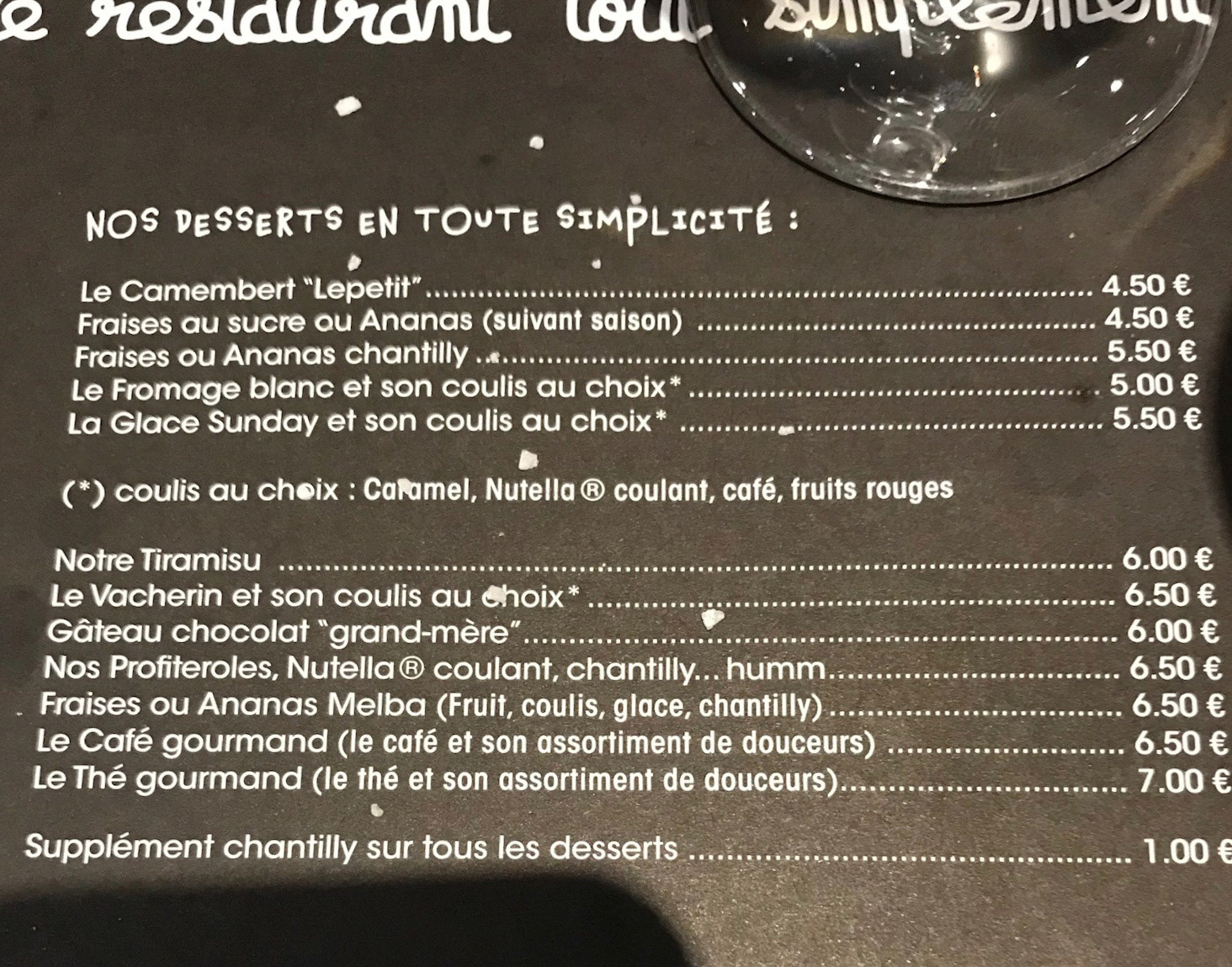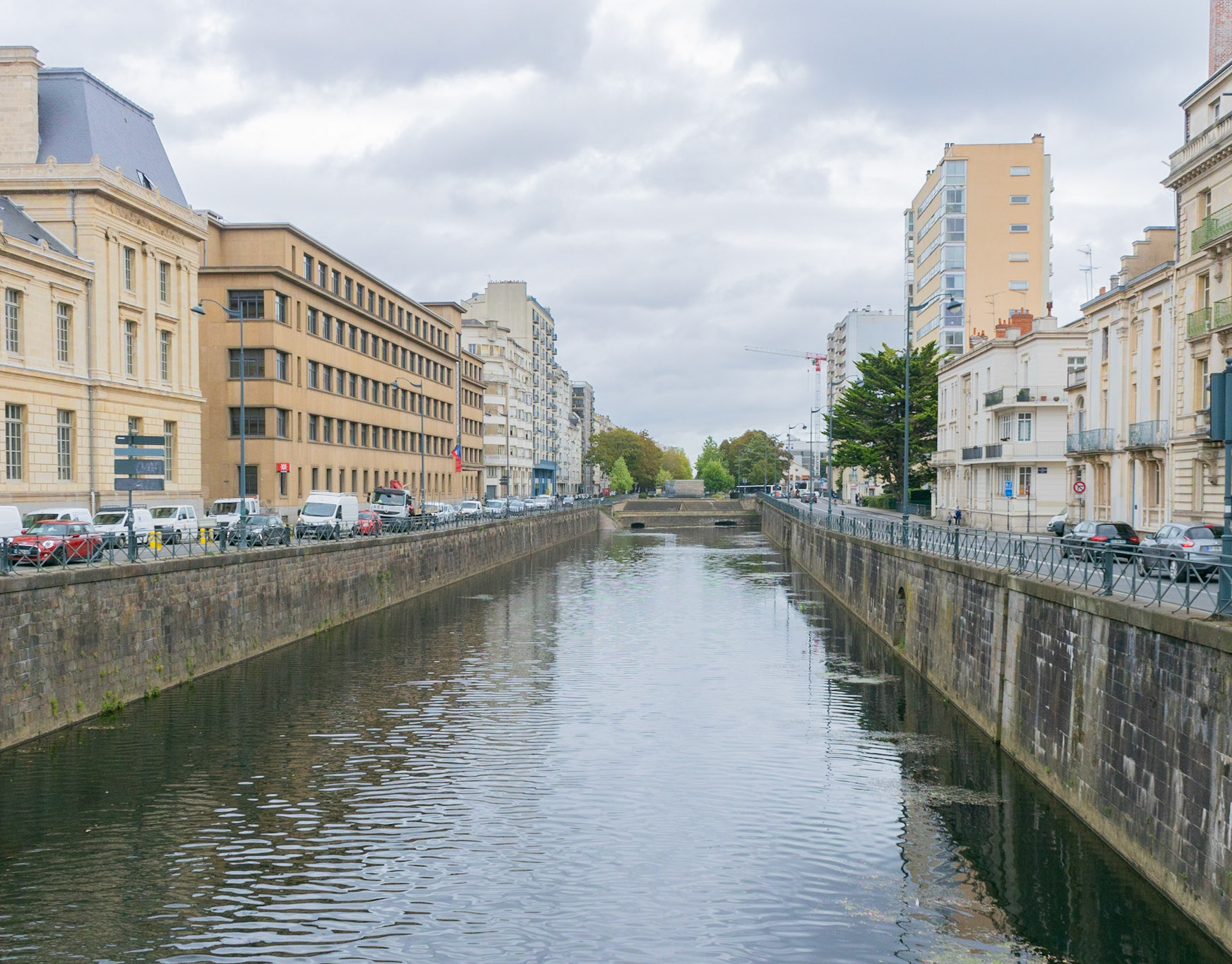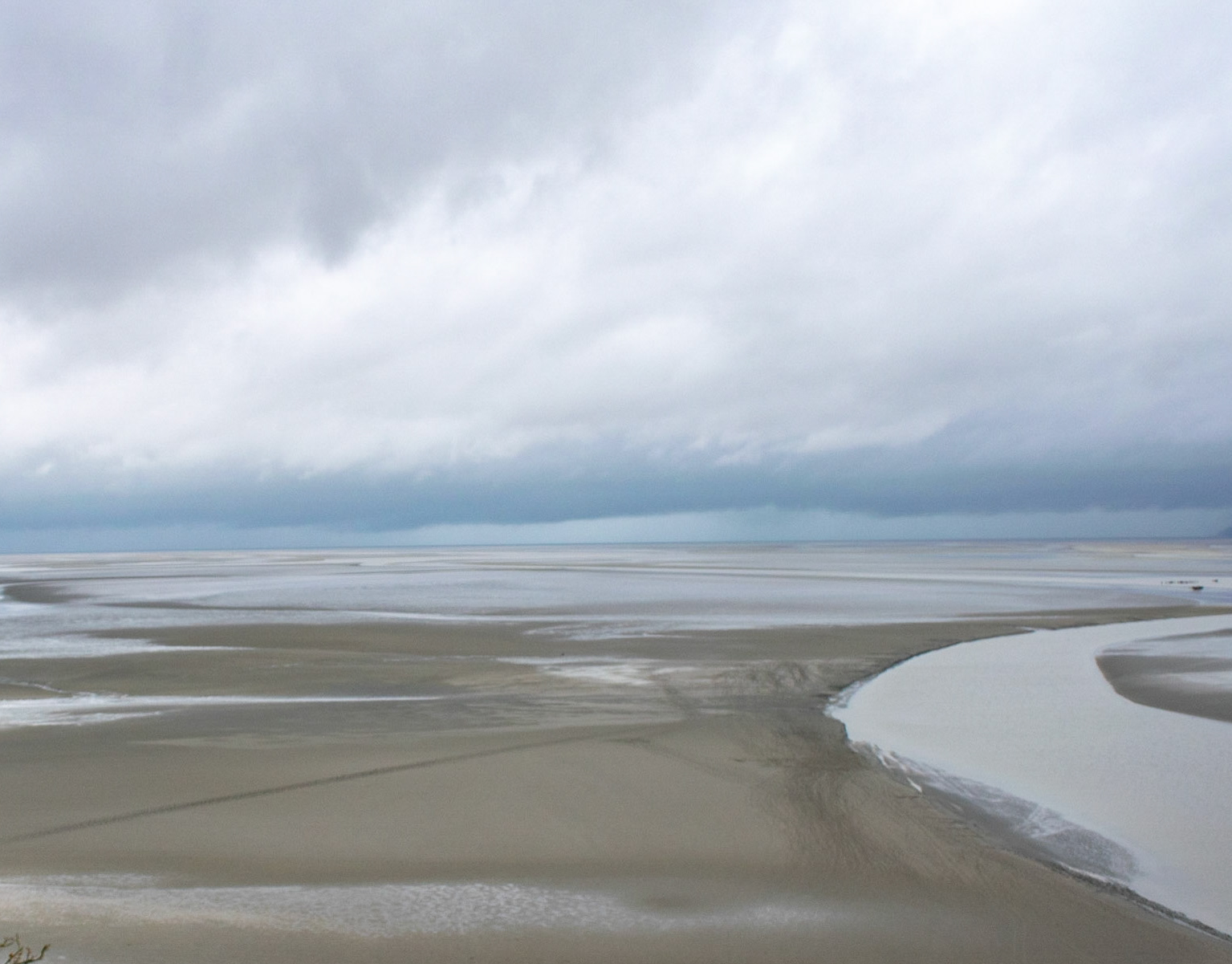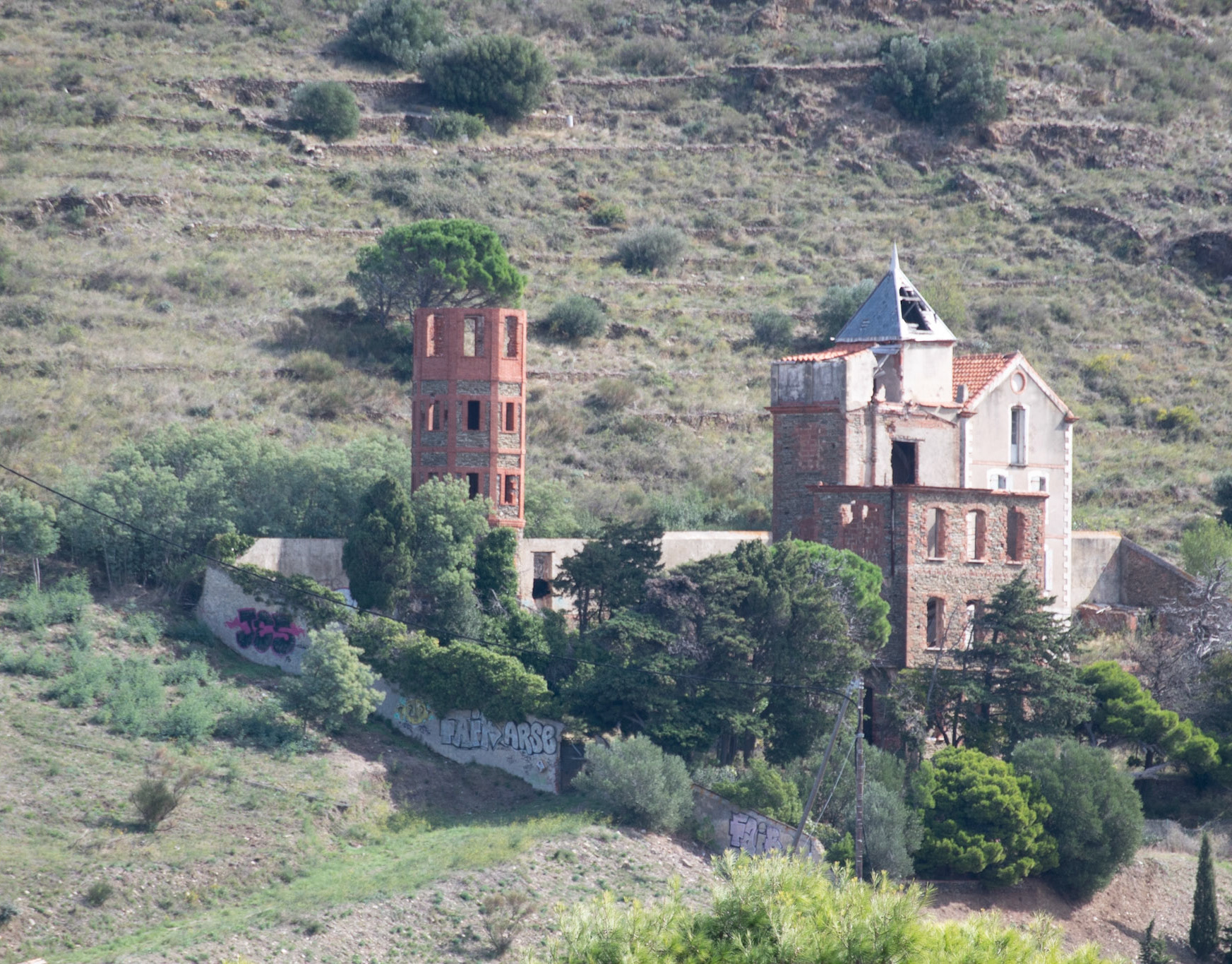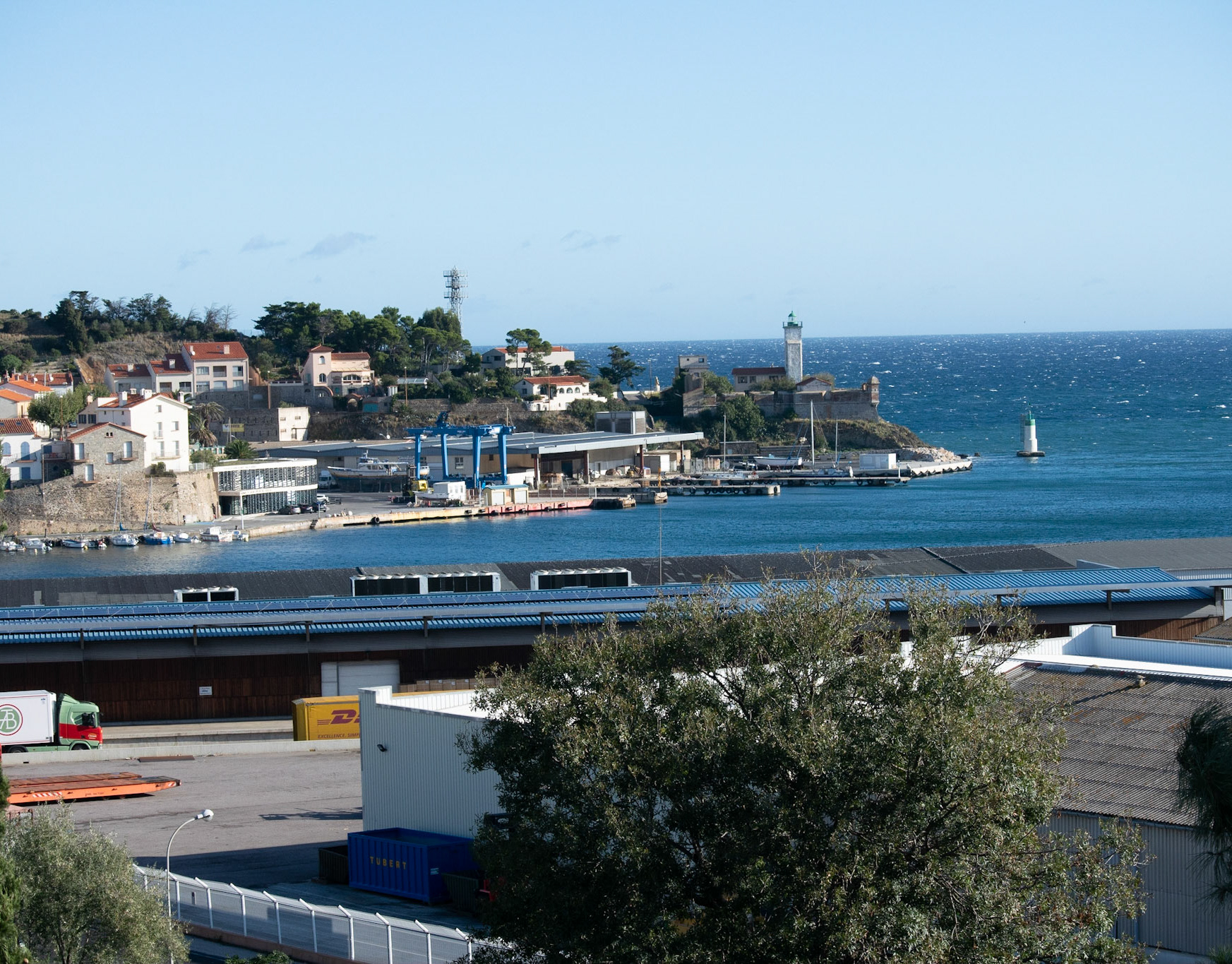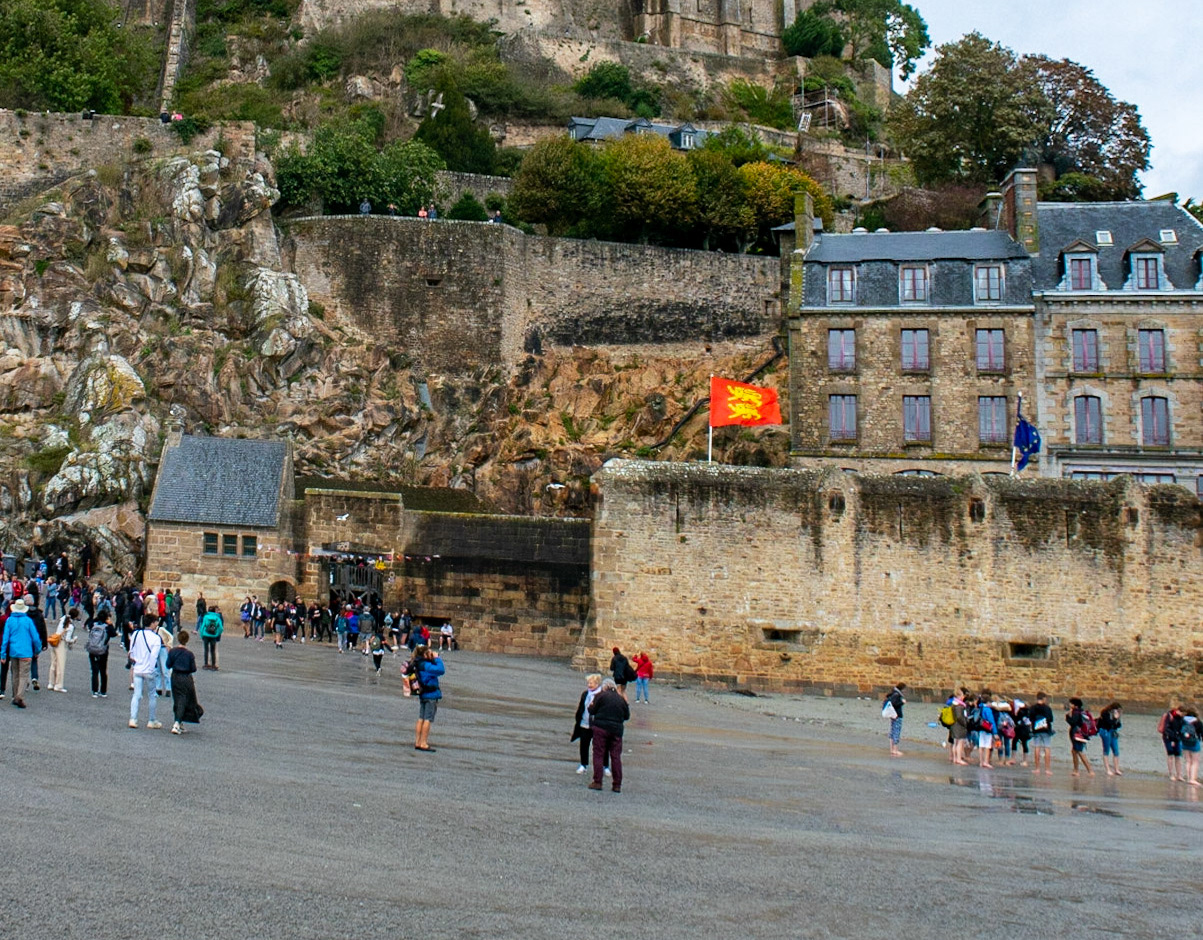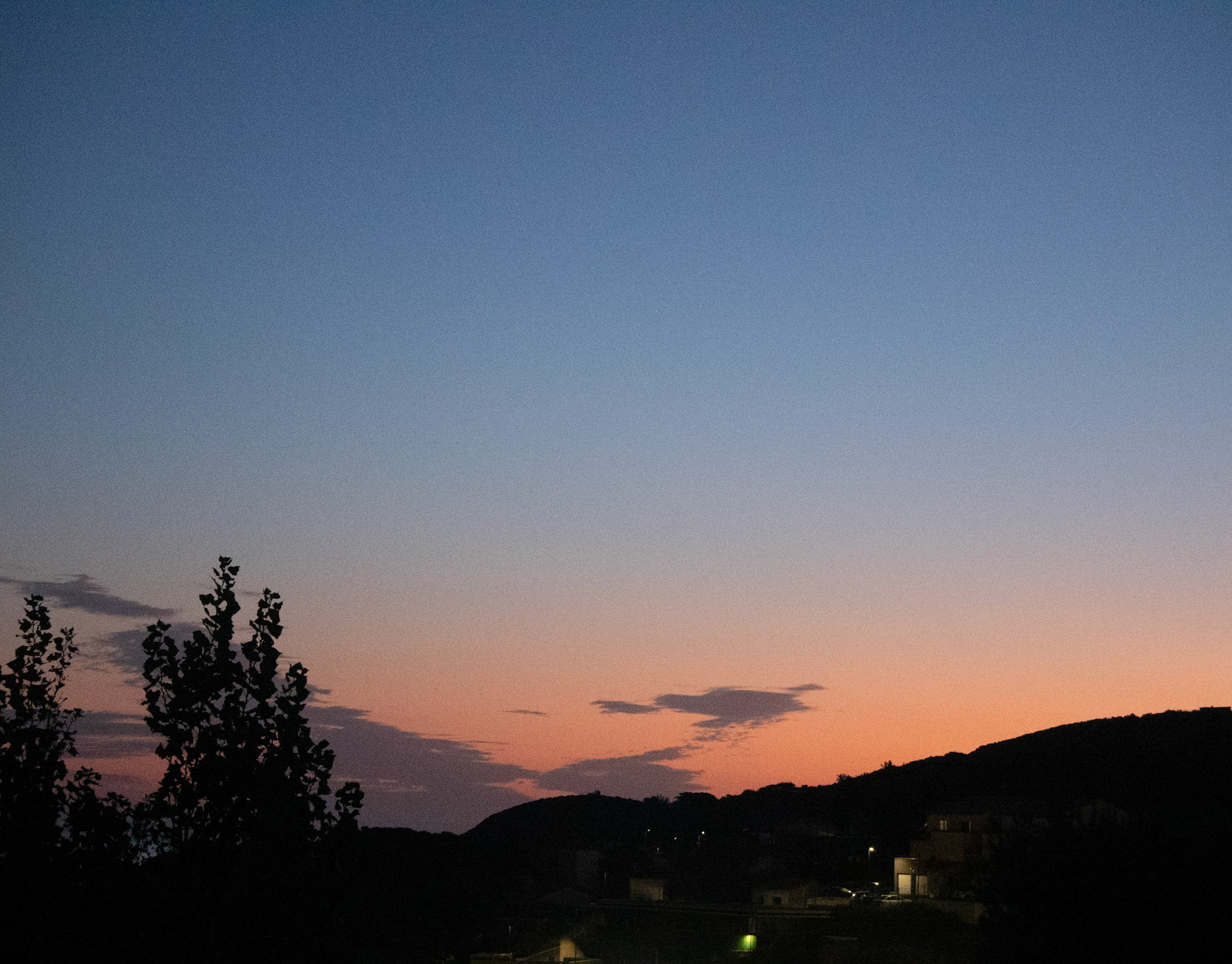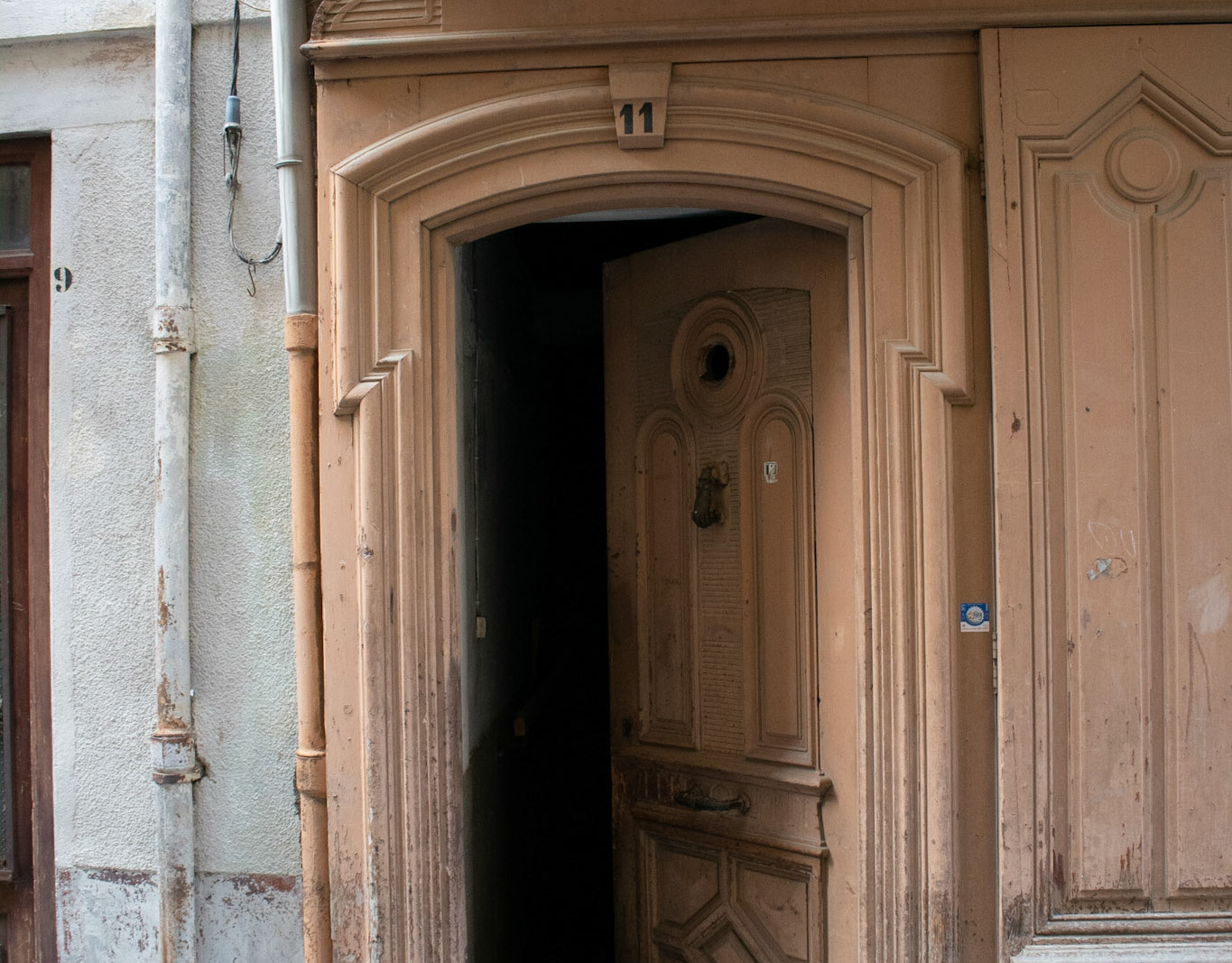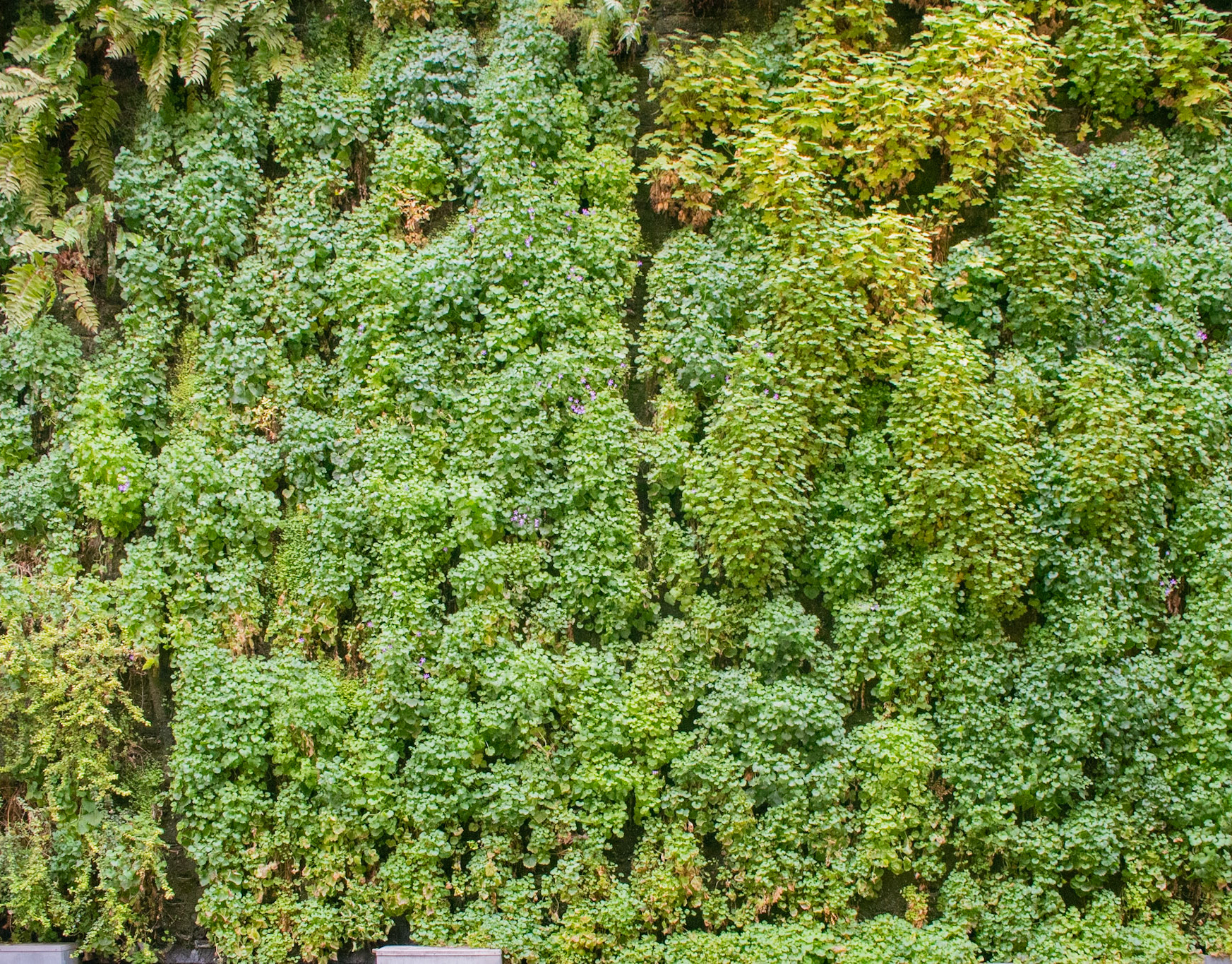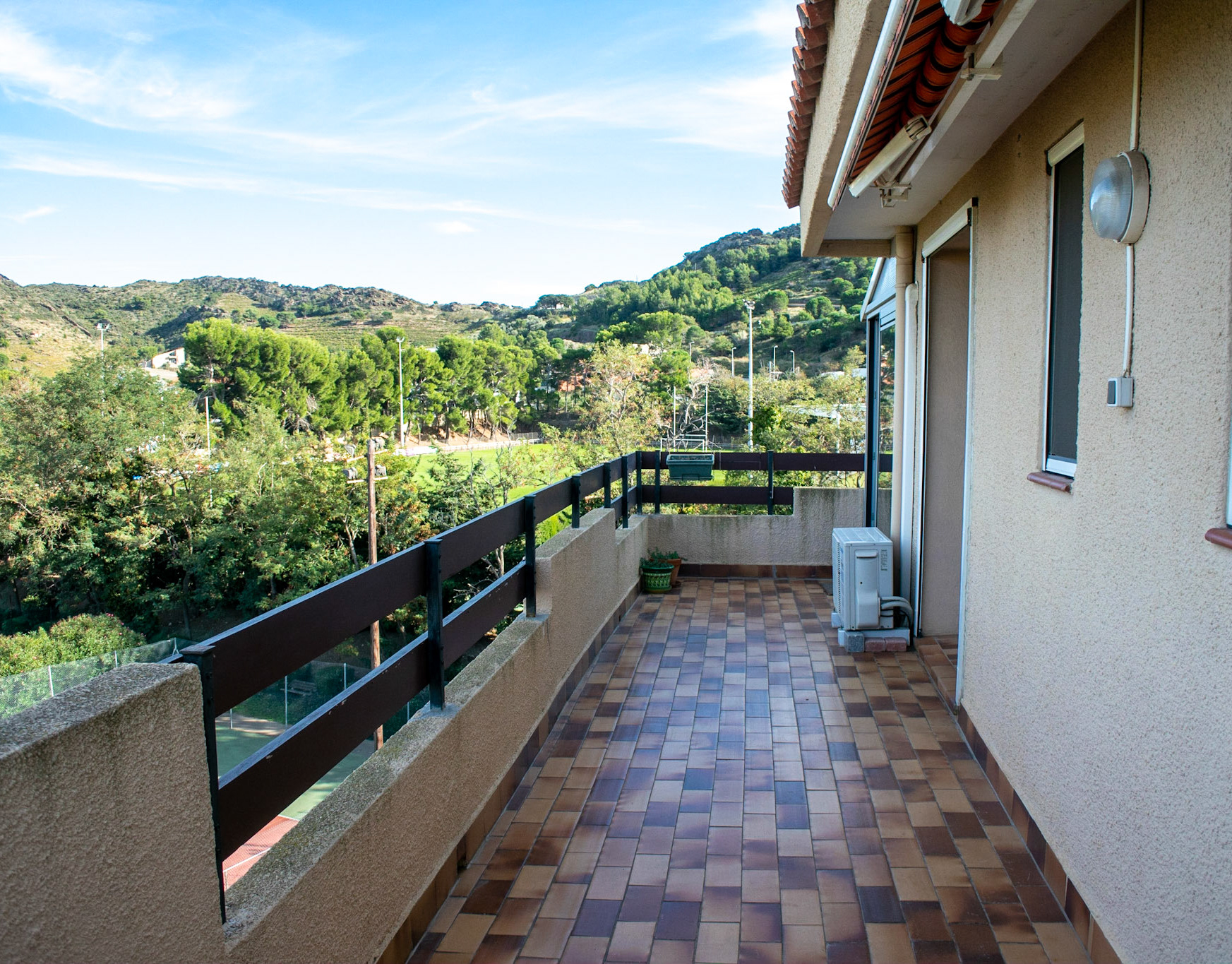It would be tough for me to find bad words about Nantes. Perhaps if I lived there, I'd have my cursed people and places, but we came for three days with no expectations and fell in love with the city.
It didn't begin as a love fest, though. We had to put the hurry on in Rennes to make our train, and we were feeling a bit paranoid about trains right then because of the intermittent strikes by our union brothers and sisters. But this trip was a pleasure. The weather was mellow—partly cloudy or partly sunny—we'd shopped for tickets carefully, so we weren't riding at peak times and we could go 1st class for much less than the commute time at its cheapest and most crowded. Peak/off-peak pricing is fantastic if you can take advantage of it.
The run from Rennes to Nantes along the secondary rail lines means that it's all local, and it's the best view of the countryside and smaller towns and villages. We love the TGV when we're using it to avoid a flight, but if there's time, the breadth and depth of French rail (plus the interlinked buses) makes travel quite affordable and way more interesting and safe than driving. We've been getting the hang of it.
A couple of months before this we were plotting possible alternative sidebars to this trip—with its center and mass in Port-Vendres. We considered flying into Barcelona, since we love it and these are exciting times there. We'd get to see our friend Jorge. There were several options that involved flying into Perpignan, but we pushed those aside because that major southern city was part of the Cote Vermeille and the north end of our local 1-euro bus line, which is how we planned to see it.
Nantes is a train hub, which is how we got to it while plotting a route roughly SSE from Mt St Michel to Perpignon—or to Barcelona to the east. Perpignan won and so did Nantes the moment we started researching it. We decided to give it three days. It was worth it. We liked the "vibe." It struck us as an accessible, family-friendly, and progressive metropolis. Modern without abandoning its past. In fact, hyper aware of its past-—good and ill.
Nantes is a port city like its neighbor to the north, Bordeaux. Just slightly inland up a large river, the Loire. We walked and walked, braving some nasty rains. Which brings me back to where I began this long digression when I said that our time in Nantes didn't begin as a love fest. Our train got into the incredibly large and busy gare right at the peak of rush hour. Utter mayhem. We banged our way out to the street and tried to figure out how to get to our hotel, which didn't look possible. That's crazy-making. And meanwhile, it started to rain and then pour and we were sitting in a bus kiosk looking at our maps while some sad woman sat beside us crying and trying to light a cigarette while her man hassled her until they made up and left.
There is no obvious way to get to the hotel unless we could get completely to the other side of the station, but it looked like forever; then we learned that there's an exit to that other side at the far end of the tunnel under the tracks and it all fell into place just before we said "let's find wine and then call a cab." Not like us. We don't give up so easily.
We finally wheeled across the parking lot of a soccer stadium to arrive at our hotel and realized that it stands in stark, rectilinear loneliness on the bank of the Loire, right where there's an island in sight that once had major industry. This was a bit like Pittsburgh.
We checked in and immediately set out to reach the old restaurant area on the island, and thus began the love affair with Nantes.
It turned out that just across an adjacent pedestrian bridge, by the entrance to the motel, there was an old, working class neighborhood's more cheeky edge followed further in with old unadorned bistros that had more to do with alcohol than food but turned out to be interesting and affordable. An adventure. Then we walked into the night and capped our first evening with emails and creating an itinerary now that we could see the lay of the land and water.
We'd already seen some street art while dragging our asses to the hotel, so we expected some interesting walls, but we hadn't researched this. Near the many bridges seemed like a no-brainer. Semi-industrial streets probably would bear fruit. Older neighborhoods near wher we'd found dinner. But we also wanted to visit the famous, serious memorial to those millions kidnapped into slavery and shipped across the Atlantic from this port. Nantes is also the home of Jules Verne. The city contributed mightily to the butter cookie market and probably still does. There's a monumental cathedral and a major restoration of medieval Château des Ducs de Bretagne, which is impressive in its own right and quite rightly committed to public access to art, history, and culture. On the day we toured, the culture was an exhibit of rope assisted climbing for kids and adults in the enormous old trees inside the walls. And there was some sort of local art exhibit.
Nantes feels bigger than it is. It's around 300,00 and the center of a conurbation of 600,000. The downtown is well kept. Lots of shops of all sizes and, like, Bordeaux pedestrianized. Lots of mass transit. A comfortable mix of architectures.
